
Caroline R Mwochi
Caroline R Mwochi is a 36 year old feminist and a human rights defender advocating for safe spaces and access for all persons including LGBTQ+ persons. As a pansexual, non-binary person, they centers intersectional feminism at the core of all their advocacy actions. Caroline is currently a co- founder and Executive Director of LETS BE TESTED QUEENS also known as Western Kenya LBQT Feminist Forum – WKLFF.
Caroline has over 16 years experience in working on human rights for all and has a vast experience in movement building, mental health, sexual reproductive health and rights, policy advocacy, building public support, media engagement, working with national, regional and international mechanisms, needs assessment, program and project management, financial management, project development and resource mobilization.
She has engaged with regional and international instruments including the International Conference for Population Development (ICPD), Commission on the Status of Women (CSW), High Level Political Forum (HLPF), The UN, the African Commission on Human and People’s Rights (ACHPR) and the Universal Periodic Review (UPR). She has also had several engagements with the Dutch, Belgian, Canadian, Danish, Swedish and Finish government as well as the EU parliament.
She is the current chairperson for the Western Kenya LBQ Organizations Collective and is the chairperson emeritus of the Right Here Right Now One (RHRN 1) platform in Kenya. She has been involved in development of the National AIDS and HIV Control Program (NASCOP), Stand- ard Operating Procedures and manual for Religious Leaders Engagement and the development of a mental health manualized program (WEMA) for sexual and gender minorities. She was also part of a research by the William Institute School of Law – Sexual and Gender Minorities in Western Kenya - https://williamsinstitute.law.ucla.edu/publications/sgm-western-kenya/ . She is one of the publishers and brains behind the conception for ‘Herdithi’ a heart wired publication for lived reality stories of LBQITGNC persons in western Kenya. Caroline is also one of the publishers of Mental health challenges and needs among sexual and gender minority people in Western Kenya - https://www.mdpi.com/1660-4601/18/3/1311/pdf .
Keywords: LGBTQ+ rights, community activism, gender-based violence, rural women and land reform
Media: Transcript, YouTube Video
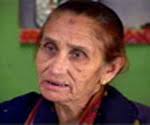
Shahjehan Aapa
1946-2013
Shahjehan Aapa grew up near Delhi in extreme poverty. In the late 1970s, her young daughter was burned alive because of dowry harassment, a tragedy that moved her to social activism. She helped found Shakti Shalini in 1987, an NGO that addresses gender-based violence by working both with individuals and with the broader community. The GFP staff note with sadness Shahjehan's death in September of 2013 after an accident on her way to Mahela Panchayat.
Keywords: feminist conferences, gender-based violence, community activism
Media: Transcript (English), Video, Bibliography, YouTube Video, Name Pronunciation Audio

Siti Abas Ali
Siti Abbas Ali was born in 1980 in Zanzibar, Tanzania; she is a gender activist, lawyer and feminist committed to promote women’s economic justice. She has campaigned for women economic justice for over 13 years while serving in different positions. She is currently working as commissioner for National Planning, sectoral Development and Poverty Reduction. In 2018 she was appointed as Personal Assistant to the Second Vice President Social Welfare. She has held several positions with both governmental and non governmental organizations. She was one of the co-founders and the first Executive Director of Save the New Generation a Women’s Right Organization, and has also worked with Zanzibar Female Members of the House of Representatives Network. She is currently enrolled in pursuing graduate study of gender.
Keywords: community activism, gender-based violence, disability rights, gender and health
Media: Transcript (Swahili, English), YouTube Video (Swahili, English)
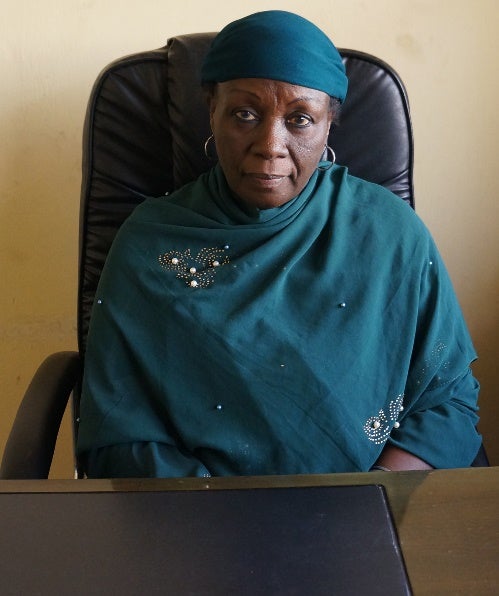
Professor Binta Abdulkarim
Professor Binta Abdulkarim was born on February 10, 1956, in Anchau, a town east of Zaria, in Kaduna State, northern Nigeria. She is the Coordinator of Gender Studies, at Ahmadu Bello University, Zaria, and is also Director of Girl Child Education there. She received her degree in Geography from Ahmadu Bello University and along with her leadership role in Gender Studies at ABU which began in 2003, she teaches courses in the Department of Geography and in the Faculty of Science Education. Her special interest in the education and well-being of women at ABU has led to her participation in ASUU (the Academic Staff Union of Universities) as financial secretary, in the National Association of University Women (Nigeria), and in the federal Anti-Corruption Unit, as the university representative who oversees sexual harassment cases at Ahmadu Bello University. She is also an active participant in the World Association of Victimology and has attended association meetings in Nairobi, Amsterdam, and Nigeria, where she contributed to discussions of the victims of weather extremes and the after-effects of war.
Keywords: academia and women's studies, community activism, environment
Media: Name Pronunciation Audio, Transcript, Video, YouTube Video

Teresa Akintonwa
Teresa Tindle Akintonwa, born in 1976, has been an Educator for over 25 years with extensive experience in Instruction and Corporate Training. Since becoming a Long Hauler after her initial covid infection in February 2020 she founded the Black Covid-19 Survivors Alliance which was first an online Patient-support group. It has since evolved into activism and advocacy aimed at helping African-Americans overcome the misinformation and social stigma of CoVid and Medical Research involvement. As President of Black CoVid Survivors Alliance she now collaborates with various organizations to increase Health Equity through Health Coaching, research participant recruitment, and DEI advisement to Research organizations.
Keywords: activism during the COVID-19 pandemic, community activism, gender and health, racial identity
Media: Transcript (English), YouTube Video, Name Pronunciation Audio
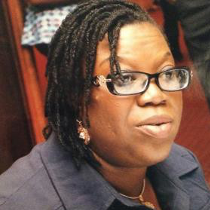
Abiola Akiyode-Afolabi
Abiola Akiyode-Afolabi was born in 1971 in Ilorin, Kwara State Nigeria. Akiyode-Afolabi studied law at the Obafemi Awolowo University. She received her LLM from the Notre Dame School of Law in the US and a PhD from the School of Oriental and African Studies (SOAS), the University of London where she specialized in women’s peace and security studies. In 2002, she established the Women Advocates Research and Documentation Center (WARDC), a not-for-profit focused on maternal and reproductive health advocacy, gender-based violence, and social justice. She also teaches International Humanitarian Law at the University of Lagos. Akiyoda-Afolabi organized grassroot networks connecting women in Nigeria. Such networks have been established in colleges across Nigeria. Read #Womanifesto: What Nigerian Women Want, an important document in Nigerian women’s movement efforts that Akiyode-Afolabi collaborated on, here.
Keywords: academia and women's studies, community activism, environment
Media: Name Pronunciation Audio, Transcript, Video, YouTube Video

Fatma Alloo
Fatma Alloo was born in Zanzibar and is a social movement activist, and journalist committed to social change. In the early 1980’s, Alloo worked as a journalist with Daily News in Dar es Salaam, Tanzania. She has vast international experience internationally as a journalist, including as a radio producer during the Uganda war, and in Geneva, Switzerland, and Amsterdam, Netherlands. Fatma Alloo is the co-founder of the feminist advocacy group Tanzania Media Women’s Association (TAMWA) in 1987. She is a co-founder of the Zanzibar International Film Festival (ZIFF) in 1997. She is also she is a member and co-founder of Zanzibar Women on the Net (ZaWoN), of FEMNET, and of the Non-Government Organization Resource Centre (NGORC) based in Zanzibar. She is presently working with Civil Society Foundation based in Dar es Salaam. She a producer and co-producer of several documentaries, which have been shown at the Berlin Film Festival. She is an associate producer of Tanzanian feature film Maangamizi (extermination) and has won several awards for her films. She has many publications.
Keywords: media, art/writing as activism, community activism
Media: Transcript (English), YouTube Video
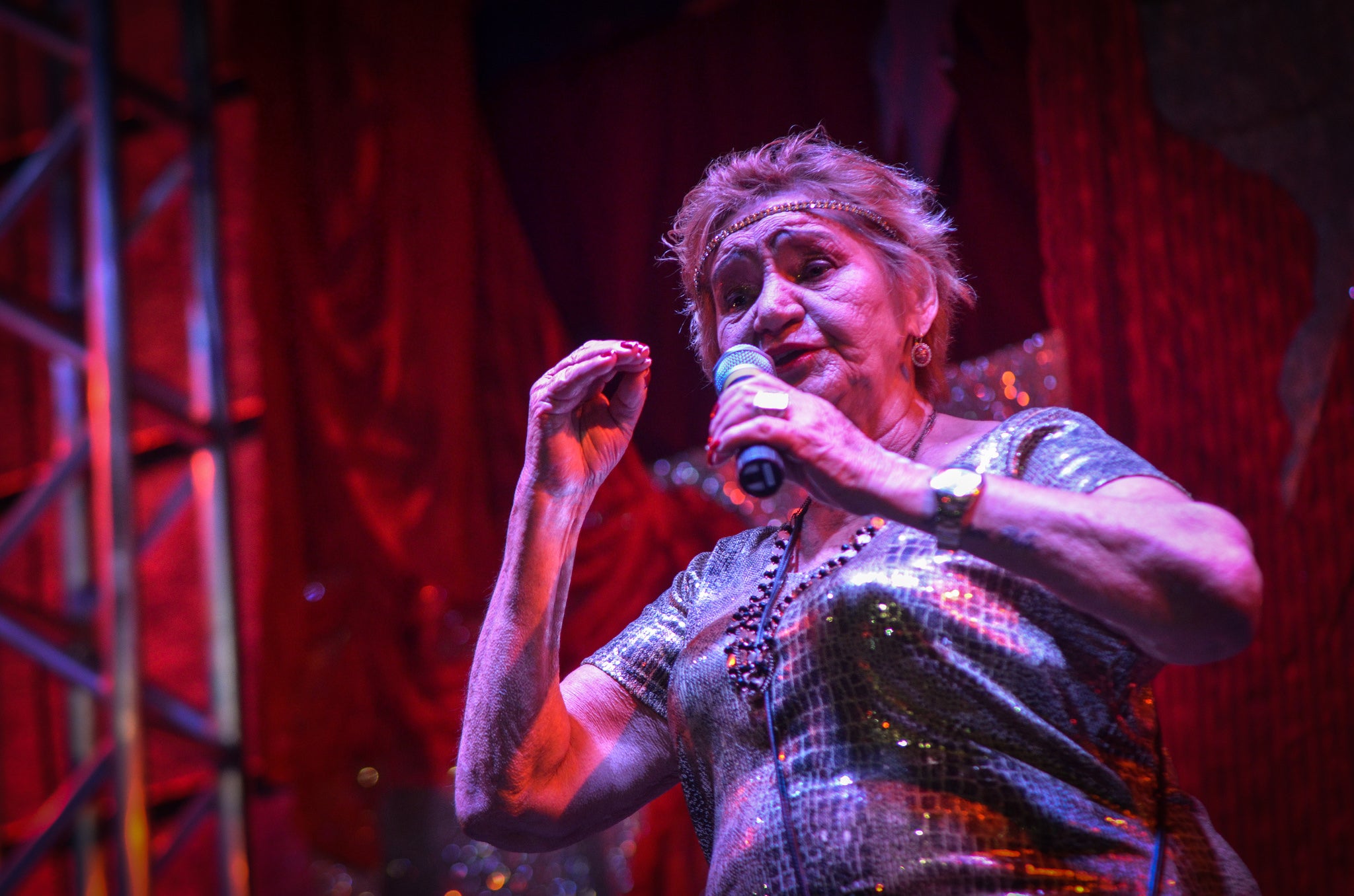
Lourdes Barreto
Lourdes Barreto, born in Catolé do Rocha in Paraíba, has been living in Belém for more than 60 years. She was the founder, with Gabriela Leite, of the Brazilian Network of Prostitutes (RBP), whose milestone was the First National Meeting, "Fala, Mulher da Vida" (“Speak, Ladies of the Night”), held in Rio de Janeiro in 1987. She was one of the founders of the Movement for the Promotion of Women - MOPROM and in 1990 created the Group of Women Prostitutes of the State of Pará - GEMPAC. Due to her recognized knowledge of and participation in the struggle to promote women's rights, she was selected to serve as a representative in the National Council of Women's Rights (CNDM) of the Brazilian Federal Ministry of Justice from 2018-2021. She is a member of the Latin American Platform of Sex Workers (PLAPERTS) and the World Network of Sex Workers (NSWP). Now 79 years old, she has been involved in prostitution for more than 50 years and served as a leader of the RBP for 35 years. She is one of 100 people who initiated anti-AIDS programs in Brazil and contributed to the construction of the Unified Health System (SUS). "I am a whore," tattooed on her left arm, expresses her history of struggle. In September 2022 she launched Lourdes Barreto: Puta Autobiography (Editora Paka-Tatu) at the Bienal das Artes (Biennial of the Arts) in Belém do Pará.
Keywords: community activism, sex work
Media: Transcript (Portuguese, English), YouTube Video (Portuguese, English Subtitles), Name Pronunciation Audio
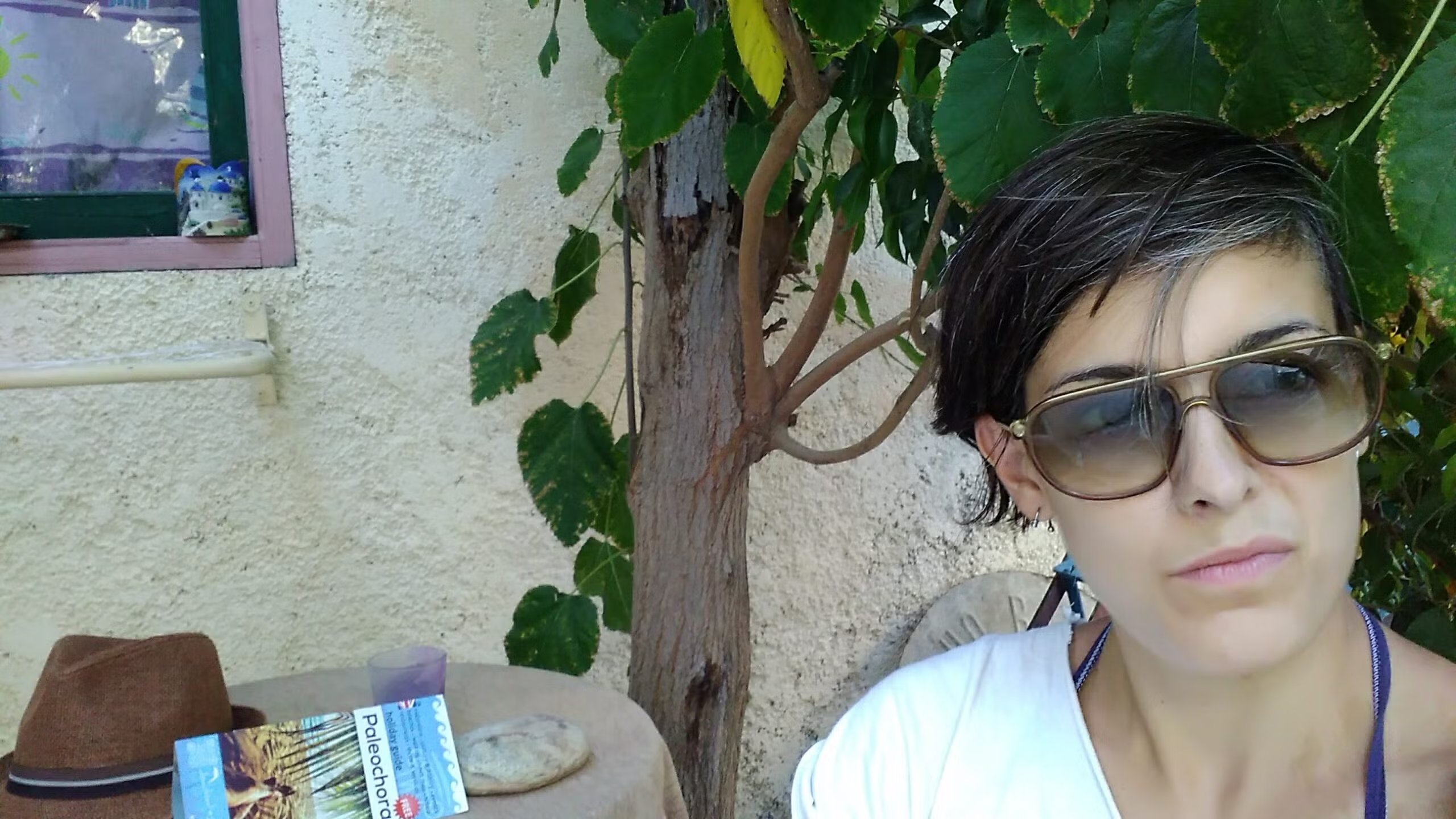
Alice Biagi
Alice Biagi was born in Modena in 1984. She received her Laurea Triennale in Communication Science at the Alma Mater Studiorum Bologna. She currently works as the school and training coordinator at Cassero, and is also a swim instructor. She has been an activist at Cassero LGBTI center since 2007.
Keywords: LGBTQ+ rights, community activism
Media: Transcript (Italian, English), YouTube Video (Italian, English)

Giulia Blasi
Giulia Blasi, born in Pordenone in 1972, is a writer and a feminist activist. She is the author of several novels and short stories, including Manuale per ragazze rivoluzionarie - Perché il femminismo ci rende felici (2018), Rivoluzione Z - Diventare adulti migliori con il femminismo (2020), and Brutta - Storia di un corpo come tanti, all published by Rizzoli. She is the creator of the #quellavoltache campaign, a hashtag used in Italy at the end of 2017 to open a conversation on sexual harassment and abuse. She lives in Rome.
Keywords: media, community activism, intersectionality, LGBTQ+ rights, art/writing as activism

Grace Lee Boggs
1915-2015
Grace Lee Boggs (1915-2015) was an activist and writer. A daughter of Chinese immigrants, she moved to Detroit and worked in grassroots projects together with her partner, James Boggs. They founded Detroit Summer, an intergenerational multicultural youth movement, and wrote in the Michigan Citizen newspaper. She published her autobiography, Living for Change, and among others, received the distinguished Alumna Award from Barnard College, the Chinese American Pioneers Award from the Organization of Chinese Americans, and a lifetime achievement award from the Anti-Defamation League. A plaque in her honor is at the National Women's Hall of Fame in Seneca Falls, NY. The GFP staff were saddened by Grace's death in 2015. Read the NYT obituary to learn more about her remarkable life, spanning a full century, as a human rights activist.
Keywords: gender and health, community activism, education, intersectionality, politics and the law
Media: Transcript (English), Video, Bibliography, YouTube Video, Name Pronunciation Audio

Carla Catena
Carla Catena was born in Ancona in 1963. She graduated in literature from the University of Bologna and works as a marketing project manager. She is active with the Lesbian Association Bologna.
Keywords: community activism, LGBTQ+ rights, politics and the law
Media: Transcript (Italian, English), YouTube Video (Italian, English Subtitles)
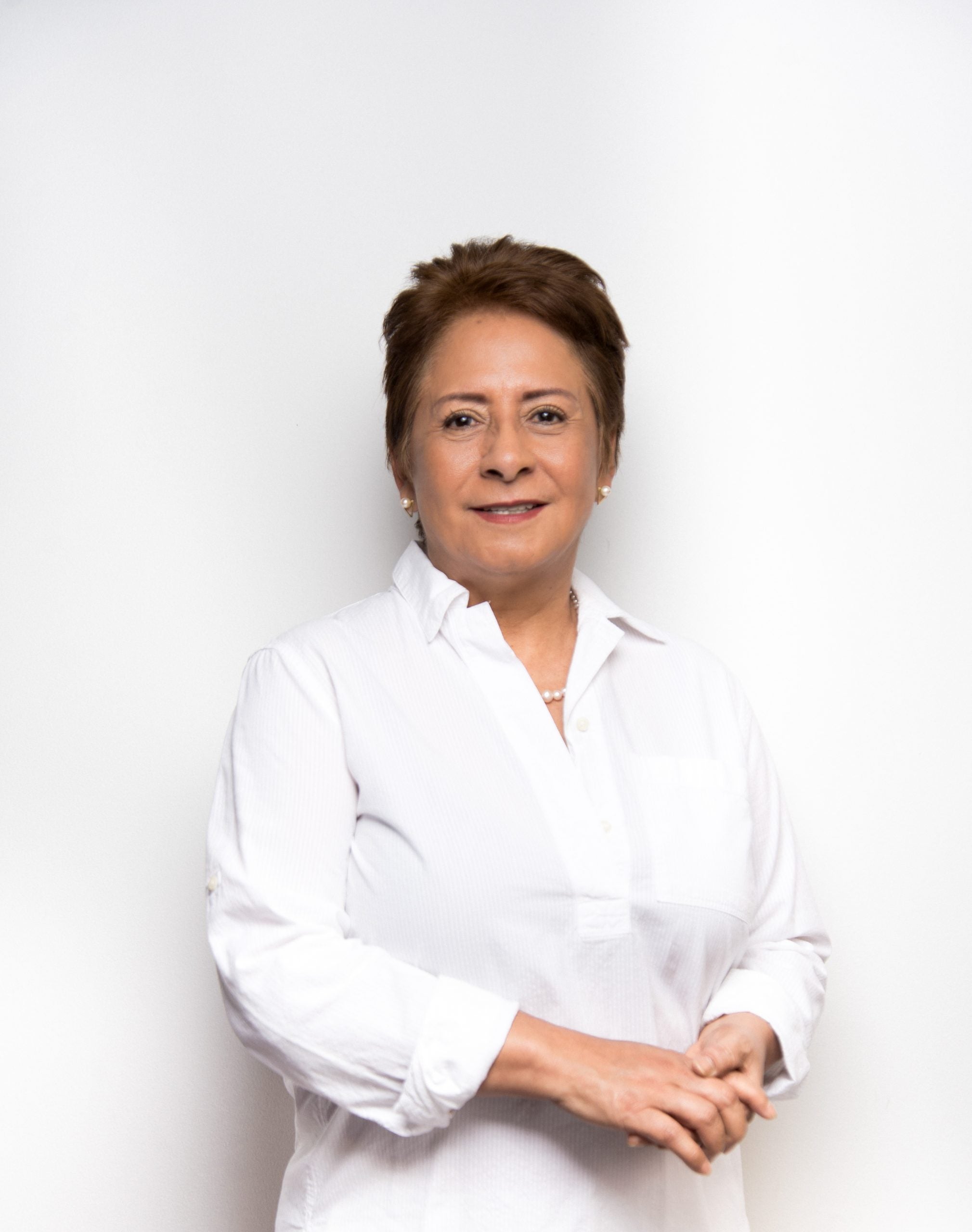
Susana Chavez Alvarado
Susana Chavez Alvarado, born in 1959, has a master’s in Public Health from Cayetano Heredia University. She is an obstetrician graduated from the National University of San Marcos and a specialist in sexual and reproductive health public policy. Susana is a founder, member, President, and Executive director of Promsex, a non-profit organization with a focus on sexual and reproductive rights that reflects a dignity, justice, and equity approach. She is also an executive secretary of the Latin American Consortium against Unsafe Abortion (Consorcio Latinoamericano contra el Aborto Inseguro, CLACAI). She has significant experience in the development of programming and scholarship around sexual and reproductive health and gendered violence. Along with her level of expertise in the field of sexual and reproductive health, Chavez has a particular interest in helping adolescent and child mothers navigate pregnancy. Her work with these adolescent and child mothers includes advocating for abortion rights. Susana is a widely published scholar in the field of Women and Politics Research, Human Rights, and Health Policymaking, collaborating with other researchers in various studies. She has authored, co-authored, and edited several books, including Life Histories of Women Who Experienced An Abortion Because Of Sexual Violence (2015), Stories To Avoid Forgetting: Violence In Relation To Adolescents’ Maternal Mortality, a qualitative study in Peru 2012-2014 (2015), Border spaces: Encounters between social services and health needs of women in La Pampa (2017), and Perceptions About Sexual And Reproductive Rights In Adolescents (2007), among others. Susana has published several studies in academic journals. She has also been an instructor of Health Public Policy with the Institute for Citizenship and Democracy (Instituto Ciudadanía y Democracia).
Keywords: community activism, reproductive rights
Media: Transcript (Spanish, English), Video, YouTube Video (Spanish, English Subtitles), Name Pronunciation Audio

Elisa Coco
Elisa Coco was born in Catania, Sicily in the late 1970s. She graduated in communication science from the University of Bologna. She helped create and works for a marketing and communication agency called “Comunicattive” focusing on gender-related communication. They deal with themes like violence against women, and lesbian and queer activism.
Keywords: feminist conferences, LGBTQ+ rights, community activism
Media: Transcripts (Italian, English), YouTube Video (Italian, English Subtitles)

Sandra Coney
Sandra Coney is a feminist, women’s health advocate, writer, environmentalist, and local body politician. She was one of the founders of Broadstreet feminist magazine and the advocacy group Women’s Health Action. In 1987, with Phillida Bunkle, she wrote the Metro magazine article ‘An Unfortunate Experiment at National Women’s’ that led to the Cervical Cancer Inquiry (also known as the Cartwright Inquiry) in 1987-88 and, subsequently, to significant reforms in health consumers’ rights. She wrote a regular column of political and social comment for New Zealand newspaper the Sunday-Times between 1986 and 2002, and has won both the Qantas Senior Feature Writers’ Award and the Jubilee Prize for Investigative Journalism. Sandra has written or edited over 18 books, including the major Suffrage Centennial publication Standing in the Sunshine: A History of New Zealand Women Since They Won the Vote (1993), and Stroppy Sheilas and Gutsy Girls: New Zealand Women of Dash and Daring (2004). Since 2001 she has been a councillor and board member in Auckland local government, serving on the Waitematā District Health Board for 10 years, and currently on the Waitākere Ranges Local Board; her particular interest is centered on parks and the environment.
Keywords: community activism, gender and health, intersectionality
Media: Transcript, YouTube Video

Elisa Dal Molin
Elisa Dal Molin was born in Feltre, in the province of Belluno, in 1975. She obtained a four-year degree in oriental languages and literature (Chinese). She has worked for many years as the regional representative for Famiglie Arcobaleno. Since the fall of 2018, she has worked as the Secretary of the Famiglie Arcobaleno (national directive).
Keywords: politics and the law, LGBTQ+ rights, community activism, reform of domestic/family roles
Media: Transcript (Italian, English), YouTube Video (Italian, English Subtitles)

JD Davids
JD Davids, born in 1967, is a US-based health justice and communications strategist working with national networks of disabled and chronically ill people. He co-founded Strategies for High Impact and its Network for Long COVID Justice in 2021. Davids has been an external expert advisor to the NIH, CDC, and local health departments, and has served as a strategist and organizer with many pivotal groups, including ACT UP Philadelphia, AVAC, the Coalition for a National HIV/AIDS Strategy, Health GAP, the Health Not Prisons Collective, the HIV Prevention Justice Alliance, Positive Women’s Network – USA and the U.S. Caucus of People Living with HIV. As a queer and trans person living with myalgic encephalomyelitis (ME/CFS), Long COVID and other complex chronic conditions, he writes and hosts conversations for The Cranky Queer Guide to Chronic Illness (@TheCrankyQueer), sits on the board of #MEAction and is a contributing member of the Patient-Led Research Collaborative, which released the first comprehensive study on Long COVID.
Keywords: activism during the COVID-19 pandemic, community activism, disability rights, gender and health, international rights
Media: Transcript (English), YouTube Video, Name Pronunciation Audio
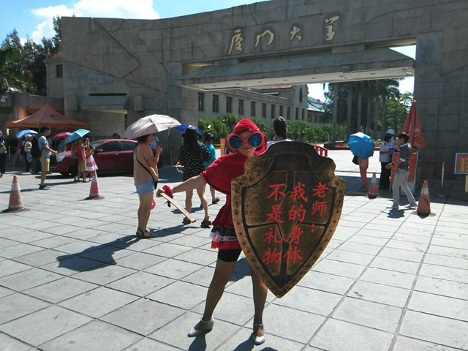
Duan Jiling
Duan Jiling was born in 1984 in Hubei, China. She holds an MA in Linguistics and Applied Linguistics from Xiamen University, and two BAs in Chinese and English Language and Literature from Huazhong University of Science & Technology. Duan is currently a Ph.D. candidate in Gender Studies at Indiana University Bloomington. Her research interests include transnational feminisms, feminist politics, and gender and media. Before coming to study in the US, she worked for an NGO serving women migrant workers in the south of China, and a women's media in Beijing as a senior editor and journalist, and has been participating in both the feminist and labor activism communities in China.
Keywords: academia and women's studies, intersectionality, community activism, media
Media: Transcript (English, Mandarin), Video, YouTube Video (Mandarin, English Subtitles)

Josephine Effah-Chukwuma
Josephine Effah-Chukwuma, born in Lagos in 1966, is a specialist in gender and development and a human rights advocate. She received her B.A. in English, and her M.A. in development studies with a special focus on women’s issues, from the Institute of Social Studies in the Hague, the Netherlands. She worked for a few years for the Constitutional Rights Project (CRP), and then in 1999 established Project Alert on Violence Against Women, a not-for-profit that addresses gender-informed abuses The Project provides counseling, advocacy, and temporary shelter for abused persons. The organization opened the first shelter for abused/assaulted women and girls in Nigeria in 2001.
Keywords: community activism, gender-based violence, reform of domestic/family roles, environment, feminist conferences
Media: Name Pronunciation Audio, Transcript, Video, YouTube Video
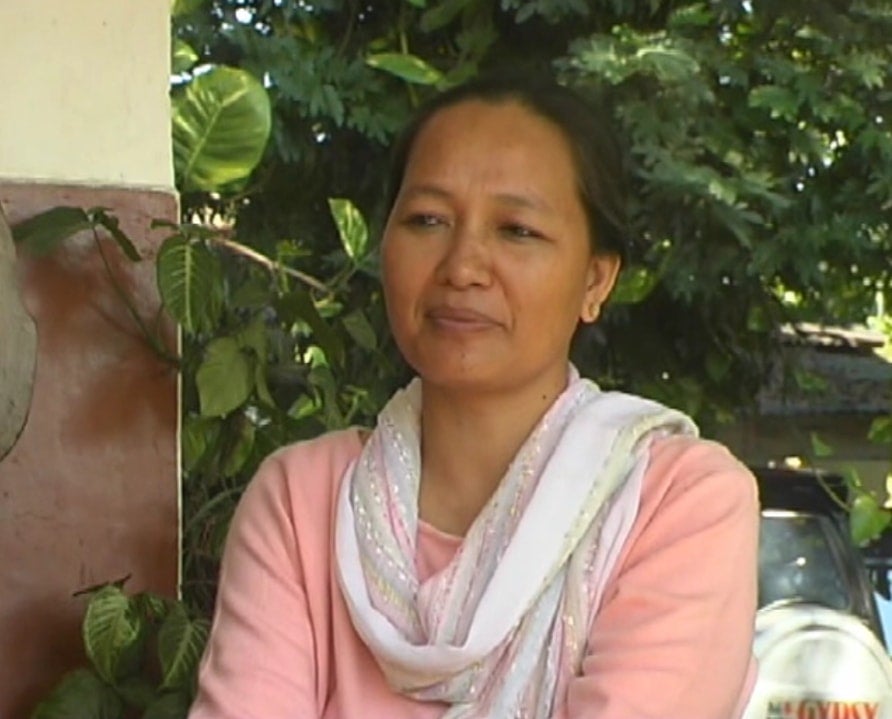
Jarjum Ete
Jarjum Ete, born in 1963, belongs to the Galo tribe and is the Chairperson of the Arunachal Pradesh State Commission on Women which discusses women's participation in panchayats, customary laws, need for a state women's commission and anti-liquor laws. She has very strong views on legalisation of prostitution.
Keywords: gender and health, community activism, gender-based violence, sex work, intersectionality, politics and the law
Media: Transcript (English), Video, Bibliography, YouTube Video, Name Pronunciation Audio

Sabrina Othman Faraji
Sabrina Othman Faraji is an entrepreneur, fashion designer and activist working to promote welfare of rural women through women economic empowerment programs such as tailoring courses. She has a diploma in Business Management & Public Administration from the State University of Zanzibar, Tanzania. In her work, Faraji encourages entrepreneurship skills among women living with HIV, and recruits some of the trained women into her own enterprise (Kanga Kabisa). She also coordinates the Zanzibar International Film Festival, and many community-based activities (e.g. Marathon, beach clean-up, women empowerment workshops, hand-made crafts exhibitions for the annual Women’s Panorama of the Zanzibar International Film Festival. Faraji is the recipient of several awards including Business Woman of the Year by Zanzibar Ministry of Trade, Best Social Venture Award by the Women’s Chamber of Commerce, and Outstanding Community Service Award by the Zanzibar International Film Festival.
Keywords: education, community activism, reform of domestic/family roles
Media: Transcript (Swahili, English), YouTube Video (Swahili, English)
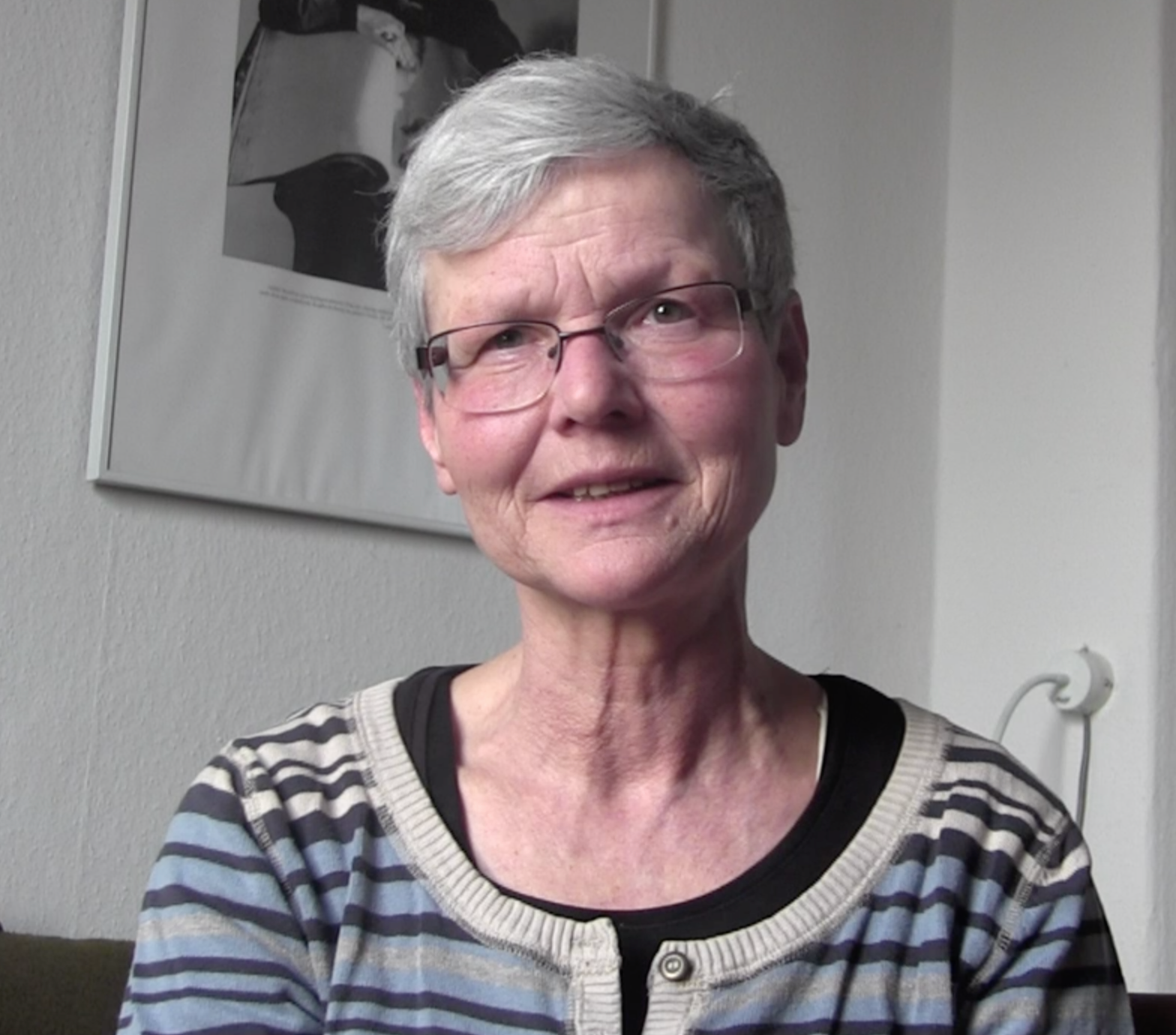
Barbara Hoyer
Barbara Hoyer, born 1955, MA in German Studies and Geography (Magistra thesis on lesbian literature in the 1970s). After her studies, she worked in the women's bookstore Labrys in Berlin (1982-1989). From 1990-1998 was she part of the organisational team of BEGiNE -Treffpunkt und Kultur für Frauen e.V., responsible for event organisation, fundraising, and accounting. Since 1975 she has been active in the women's and lesbian movement, first in various women's groups (including LAZ -Lesbian Action Centre Berlin -around 1980), then in the above-mentioned women's projects). Since 2004 she has been project manager of the BEGiNE.
Keywords: media, academia and women's studies, community activism, art/writing as activism, LGBTQ rights
Media: Transcript (English, German), Video, YouTube Video (German, English), Name Pronunciation Audio
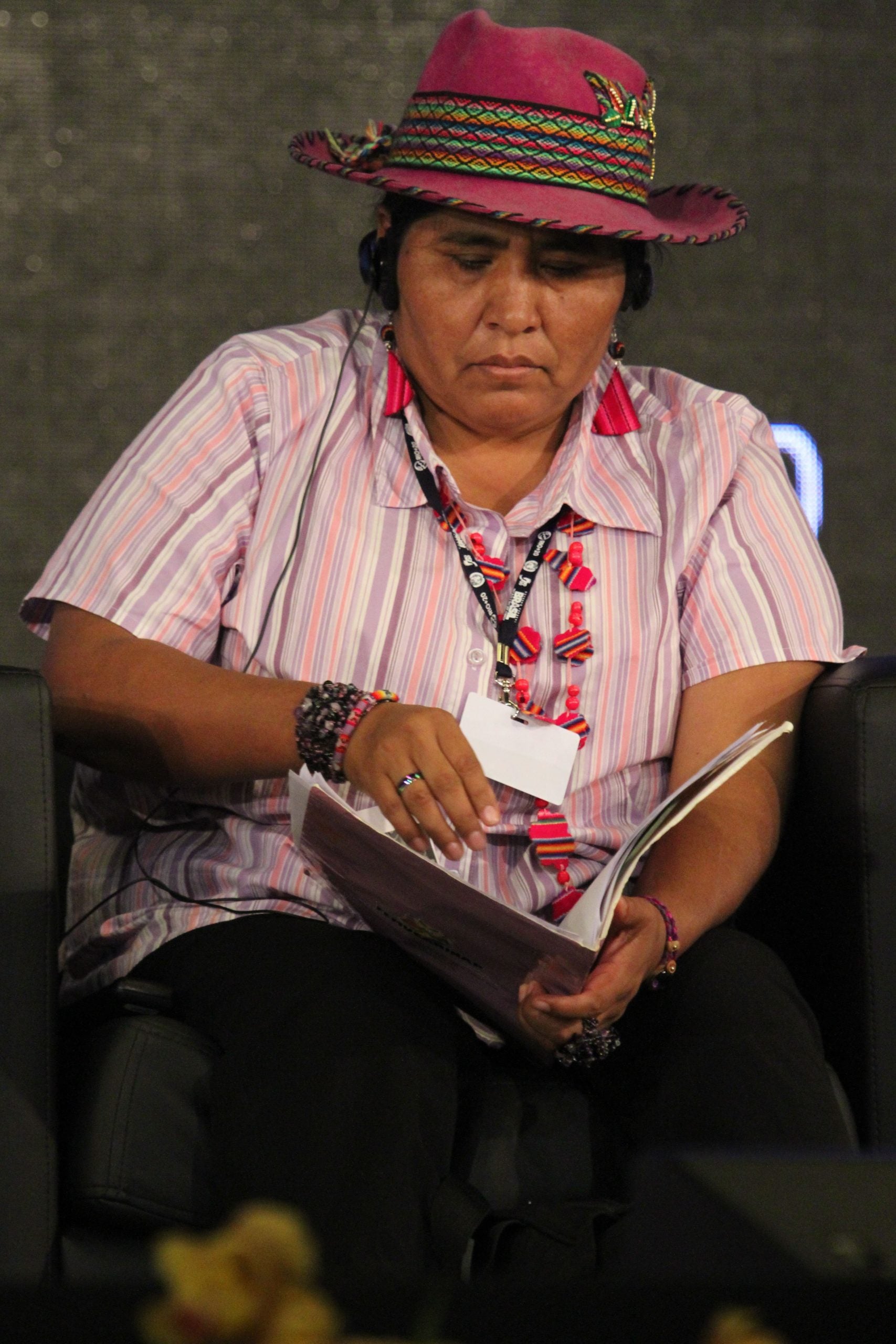
Lourdes Huanca Atencio
Lourdes Huanca Atencio, born in 1968, is founder and president of the National Federation of Female Peasants, Artisans, Indigenous, Native and Salaried Workers of Peru (FENMUCARINAP). The organization was founded in 2006 with the purpose of defending and fighting for the rights of women in Perú. Rooted in an ancestral cosmovisión (or worldview) of their indigenous communities, a central struggle has been the fight for their subsistence, in maintaining land, water and seed sovereignty. The main goals include: (1) control and defense of the territory of the female body, which is often violated; (2) the political, economic, social and cultural empowerment of women who sustain society, yet whose work and contributions are not recognized; (3) defending the sovereignty of indigenous women’s subsistence, which is land, water and seeds, because a campesina (or rural woman) without those things has no choice but to move to city where she then becomes extremely impoverished. Lourdes is one of five women promoters of human rights who were recognized by the Ministry of Justice and Human Rights in Perú during a ceremony held in the framework of the commemoration of International Women's Day in March 2020. She has also participated in numerous UN initiatives (e.g., as a regular participant in the United Nations Framework Convention on Climate Change) and is also a member of the Fund for the Development of Indigenous People of Latin America and the Caribbean (FILAC).
Keywords: community activism, rural women and land reform
Media: Transcript (Spanish, English), Video, YouTube Video (Spanish, English Subtitles) Name Pronunciation Audio
Interviewee Photo Credit
By theverb.org. https://www.flickr.com/photos/71015487@N03/7382740578/in/photolist-cfotyE. Creative Commons. Accessed 2 February, 2021.

Xueqin (Sophia) Huang
Xueqin (Sophia) Huang was born in 1988 in Shaoguang, Gangdong province. She graduated from Jinan University. She used to work as a journalist for a national news agency and progressive newspaper. She is freelancing now, writing for Southern Metropolis Weekly, The Livings, The Initium Media and NGOCN. Her reporting focuses on democracy development, civil society and the rights of disadvantaged groups in China. She published a report on workplace sexual harassment of Chinese female journalists in 2017, which ignited and promoted #Metoo movement in China. She is dedicated to women's rights and advocacy for anti-sexual harassment law. In 2019 she was jailed for several months for her reporting on Hong Kong's pro-democracy movement. Read more about Xueqin (Sophia) Huang and her activism in the face of political repression here.
Keywords: gender-based violence, media, politics and the law, community activism
Media: Transcript (English, Mandarin)

Ngozi Iwere
Ngozi Iwere, born in 1956, has pursued work in language teaching, journalism and communications, but describes herself as primarily an activist. Through her contributions to the United Nations Expert Strategy Meeting on HIV/AIDS and Gender preparatory to the UN General Assembly on HIV/AIDS, the Expert Strategy Meeting on HIV/AIDS as a security issue, and UNAIDS Consultative Meeting on Communication for Social Change, she played key roles at the national and global levels in shaping policies on HIV/AIDS. She developed a model program for HIV/AIDS Prevention that targets and involves the entire community, which earned her an Ashoka Fellowship.
Keywords: community activism, gender and health, reform of domestic/family roles, feminist conferences
Media: Name Pronunciation Audio, Transcript, Video, YouTube Video

Ang Jury
Dr. Ang Jury is the CEO of Women’s Refuge New Zealand. Ang grew up in Waitara, a small town in the Taranaki region of Aotearoa/New Zealand’s North Island. Although she was a straight-A student, she chose to leave school at age 15, start a family, and move to Tauranga. Her marriage ended in her 30s, and she decided to study to be a social worker. She attended Massey University, where she completed an undergraduate degree and then decided to continue on to doctoral research focused on the role of shame within abusive relationships. She gained her PhD in 2008.
Encouraged to volunteer in her community as part of her studies, Dr. Jury joined the Palmerston North Women's Refuge. She has worked in the domestic violence area for over 20 years, mostly within the Women’s Refuge movement in Aotearoa, beginning as a volunteer, then advocate, then to management and Board member, and eventually Chief Executive. In addition, she has been instrumental in the development of cross-agency collaborations both regionally and nationally.
Dr Jury has presented her research to forums within New Zealand and internationally. In addition to her work with Women’s Refuge, she has worked to develop and coordinate family violence collaborations within the Manawatu and Whanganui regions under the umbrella of the government’s Te Rito Family Violence Strategy.
In the 2022 New Year’s Honours List, Dr Jury became an Officer of the New Zealand Order of Merit (ONZM) awarded by Queen Elizabeth II.
Keywords: community activism, gender-based violence, intersectionality
Media: Transcript, YouTube Video

Maimuna Kanyamala
Maimuna Kanyamala was born in 1956, and is an activist, entrepreneur and feminist who has actively campaigned for women’s rights in Tanzania. She has translated her feminist activism to the grassroots level, while also bringing it to the national level policy platform. She was one of the co-founders and the first Executive Director of Kivulini Women’s Rights Organizations. Kivulini means "in the shade/shelter" and is intended to imply a safe place where women, men, and children feel supported. The organization seeks to address the root causes of domestic violence by working closely with community members and leaders to change attitudes and behaviors that perpetuate violence against women. In 2011 she was awarded ‘Tanzania Women of Courage’ by the US Embassy Tanzania in recognition of her efforts in challenging gender-based violence and promoting women’s rights in Tanzania. Scaling up her efforts on women rights, she has partnered with national, and international feminist groups in Canada and Ireland to build global solidarity on shared issues of violence against women, HIV/AIDS and poverty. In 2012 she stepped down from her leadership role in Kivulini and turned to founding MikonoYetu. MikonoYetu means “joining our hands” in Kiswahili, the national language of Tanzania. MikonoYetu is a women-led-non-profit organization based in Mwanza, Tanzania. She is a think tank member in the Ending Violence against Women and Girls group. She is currently working to develop a comprehensive history of African women, and ultimately establish a women’s history museum in Mwanza, Tanzania.
Keywords: academia and women's studies, community activism, education, feminist conferences, gender-based violence, international rights
Media: Transcript, YouTube Video
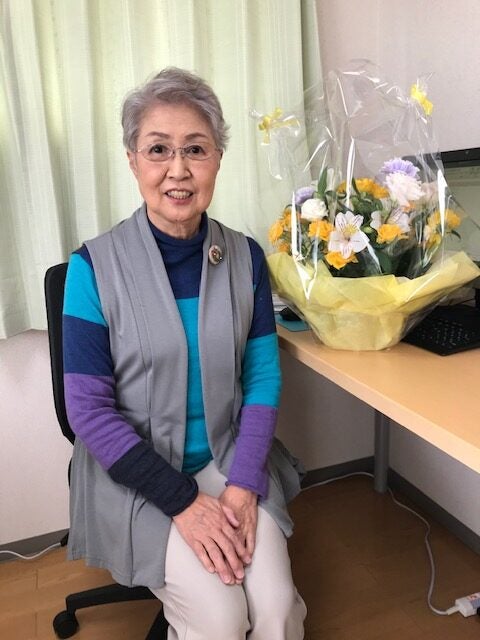
Teruko Karikome
Teruko Karikome, founder and former Executive Director (2007~2019) of NPO Women’s Space Fukushima (https://www.npo-womensspacefukushima.com/, formerly, Association Supporting Women’s Independence), Koriyama City, Fukushima Prefecture. She has long and extensive experience promoting women’s rights and wellbeing including previously serving as the Director of the Koriyama City’s Maternal and Child Welfare Center. Following the Great East Japan Disaster in 2011, her NPO managed “Women’s Space” in the biggest evacuation shelter in Fukushima, and continues to operate programs such as telephone counseling, support groups, and workshops on gender-based violence, while advocating for policy attention to women in Fukushima. Although she stepped down from the Executive Director, she continues to be actively involved in the growing program activities of Women’s Space Fukushima.
Keywords: environment, gender-based violence, reform of domestic/family roles, community activism
Media: Transcript (English, Japanese), YouTube Video (Japanese, English Subtitles)

Ke Qianting
Media: Transcript (English, Mandarin), YouTube Video (Mandarin, English Subtitles)

Sue Kedgley
Sue Kedgley was one of the early leaders of the women’s liberation movement in New Zealand.
She set up the Auckland University women’s liberation group in 1971 and the National Organisation for Women in 1972. She helped organise a high-profile tour of internationally acclaimed feminist Germaine Greer to New Zealand in 1972 and co-authored the first book about women’s liberation in New Zealand, entitled Sexist Society.
Kedgley attended the first international feminist conference at Boston in 1973 and then worked as a Communications Officer in the Women’s Secretariat at the United Nations, New York, helping to organise the first international women’s conference at Mexico City in 1975 and coordinate International Women’s Year 1975. She helped set up the UN women’s group and was active in it for the 8 years she worked at the United Nations. She was Assistant Secretary of the second United Nations Conference for Women, which was held in Copenhagen in 1980.
Returning to New Zealand in 1982, she worked for a decade as a television reporter, director, and producer, then entered local politics as a Wellington City Councillor from 1992 until 1999 when she was elected a Member of Parliament (MP) for the Green Party, serving as an MP from 1999 until 2011. She was women’s spokesperson for the Green party and Deputy Chairperson (1999-2005) and subsequently Chairperson of the New Zealand Parliament Health Select Committee (2005-2008). Sue was a Wellington Regional Councillor for six years and has served on several boards, including the National Board of UN Women Aotearoa New Zealand. She continues to be active in women’s issues and is a Convenor at the National Organisation for Women New Zealand.
Kedgley has written six books on feminist issues, including Sexist Society (1972; co-edited with Sharon Cederman), Mum’s the Word: The Untold Story of Motherhood in New Zealand (1996), and most recently, a memoir entitled Fifty Years a Feminist (2021). In 2016, she received a New Zealand Women of Influence Award in recognition of her work towards greater gender diversity in the workplace, and in 2020, she was appointed an Officer of the New Zealand Order of Merit (ONZM) for services to women and governance.
Keywords: community activism, politics and the law, reform of domestic/family roles
Media: Transcript, YouTube Video
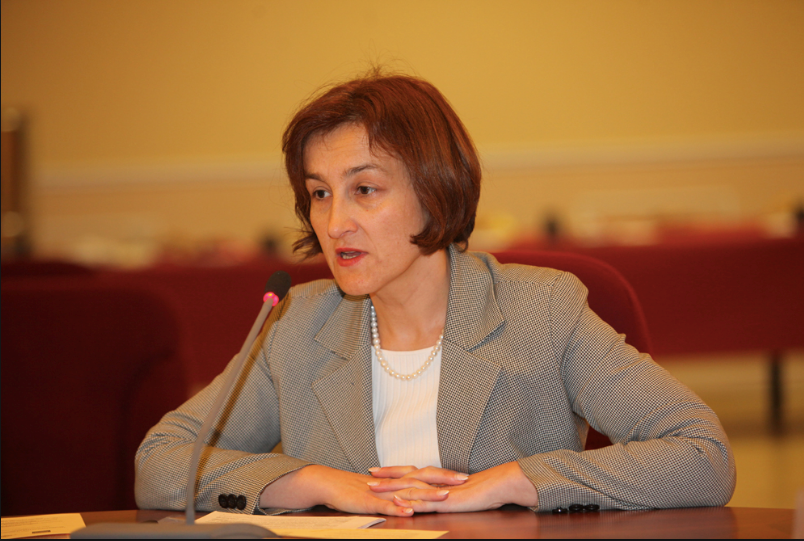
Yelena Viktorovna Kochkina
Yelena Viktorovna Kochkina, born in 1956, began working in gender research in 1990. Her work focuses on a gender analysis of legal reform in Russia, structural adjustment programs and the implementation of equal opportunity policies in Russia, as well as gender in the Russian education system. She is a research fellow and professor at the Institute of Social and Economic Studies of the Population at the Russian Academy of Sciences.
Keywords: academia and women's studies, politics and the law, intersectionality, community activism, reform of domestic/family roles, feminist conferences
Media: Transcript (English, Russian), YouTube Video (English, Russian), Name Pronunciation Audio
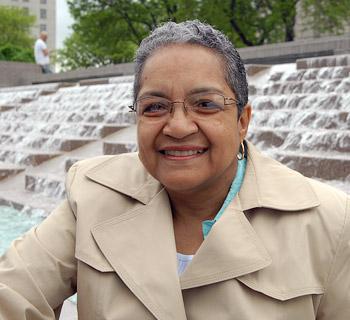
Marian Kramer
Marian Kramer (interviewed with Maureen Taylor) at last contact was the co-chair of the National Welfare Rights Union. She has fought government programs, such as Workfare, defended poor women against unjust persecution for welfare fraud and led campaigns to elect the victims of poverty to political office. She has organized poor people's movements, housing takeovers by people without homes, and led efforts to unionize in the South. She has received many community service awards and mentors college students fighting poverty. Taylor and Kramer spoke at a rally in Detroit, Michigan in June 2020, and a video of their speech recorded by the group Detroit Will Breathe can be found here.
Keywords: gender and health, media, community activism, politics and the law
Media: Transcript (English), Video, Bibliography, YouTube Video, Name Pronunciation Audio

Anna Kulaya
Anna Meela Kulaya was born in 1975 in Tanzania, and has spent almost twenty years serving her community through her work in the legal sector especially on issues around gender-based violence in the community and workplace. She holds LLB and Master of Law degrees from the University of Dar es Salaam. She is an advocate of the High Court of the United Republic of Tanzania. She began working for Women in Law and Development in Africa (WiLDAF) as a legal officer and subsequently held various positions within the same organization; she is currently the National Coordinator of WiLDAF Tanzania. Kulaya serves on various boards, and coordinates the 16 Days of Activism Campaign against GBV in Tanzania and its national campaign. She was the chairperson of the Legal Aid Committee of the Tanganyika Law Society, and is currently serving in a network for legal aid providers (TANLAP), and in the Tanzania Association of Non- Governmental Organizations (TANGO), an association with more than 100 Civil Society Organizations. She also leads Her Initiatives, a dynamic organization advocating for young women rights, chairperson of My Legacy and currently serves as a chairperson of CSO’S Women Directors Forum, which brings together more than 50 women Directors from the non-governmental organizations advocating for gender equality and women empowerment. She is also a member of the Committee of GBV Multi-Sectoral COORDINATED by the Ministry of Health, Community Development, Gender, Elderly and Children (MoHDEC). She is also a member of the Tanganyika Law Society.
Keywords: activism during the COVID-19 pandemic, gender-based violence, community activism
Media: Transcript, YouTube Video
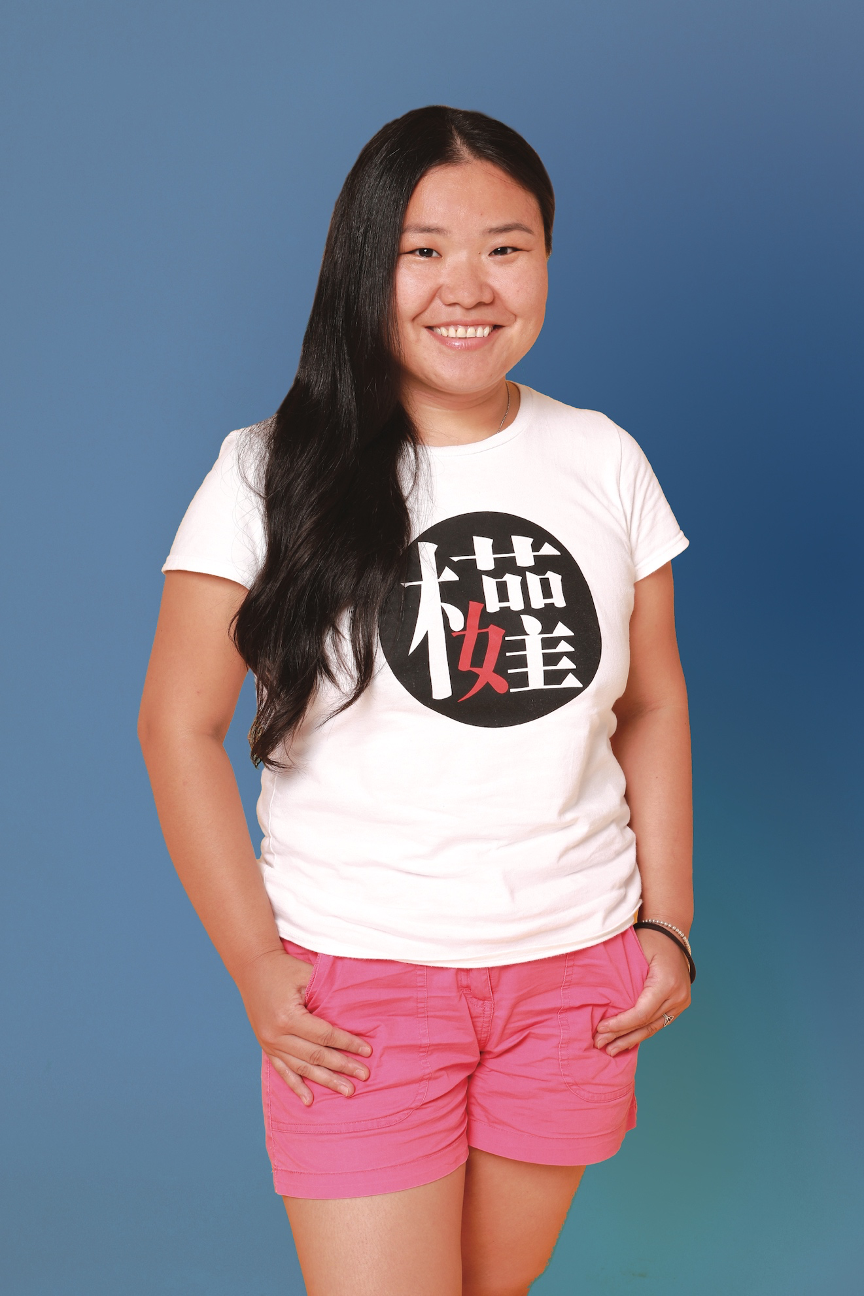
Sanshan (Joy) Lin
In April 1987, Sanshan Lin (Joy Lin) was born in a small village in Yongji County Jilin Province. After graduating with a bachelor degree in sociology in Northeast Normal University, she went to Shanghai and started her career in executive search industry. In November 2016, she founded 我们与平权 Wequality, a feminist organization dedicated to raising public awareness of gender inequality in China, building community, and empowering members to unite to make gender equality a reality. Through regular WeChat articles and online/offline activities, Wequality continues its advocacy. In 2018, Wequality initiated “Our Stories” project to release interview reports annually with people’s experiences and opinions on different gender issues in China. The one on sexual harassment was released in 2019 while another on gender discrimination in 2020.
Keywords: community activism, education, gender-based violence
Media: Transcript (English, Mandarin)
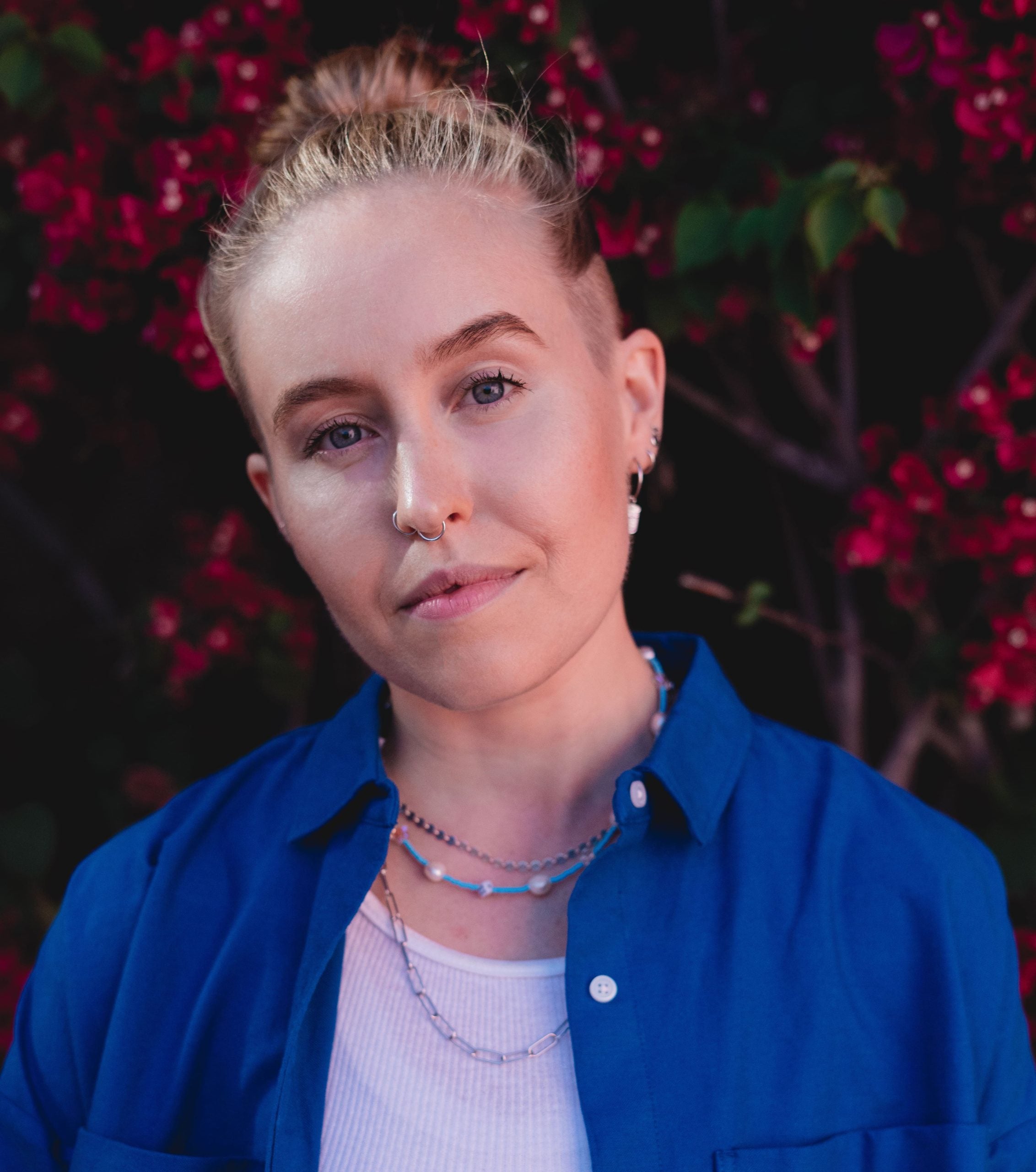
Fiona Lowenstein
Fiona Lowenstein, born in 1993, is an award-winning independent journalist, producer, and speaker, covering health justice, wellness culture, LGBTQ+ issues and more. Their work has appeared in The New York Times, Teen Vogue, Vox, The Guardian, and Business Insider, among other publications. Fiona is the founder of Body Politic – home of the original Long COVID support group. They are also the editor of the recently published anthology, THE LONG COVID SURVIVAL GUIDE, out November 2022 from The Experiment. Photo credit: JJ Geiger
Keywords: activism during the COVID-19 pandemic, community activism, disability rights, gender and health, intersectionality, media
Media: Transcript (English), YouTube Video, Name Pronunciation Audio
Salma Maoulidi
Salma Maoulidi identifies as a feminist, public intellectual, and has roots in women’s and civil society movements within the region and globally. Maoulidi is a graduate of the University of Dar es Salaam (LLB); and Georgetown University Law School. Maoulidi grew up in the emerging women’s and later feminist movement in the late eighties in Tanzania. She was thus in the midst of pioneering initiatives ushered in by the new rights dispensation, including serving as the first legal counsellor at the TAMWA crisis centre, providing legal assistance to survivors of GBV. Maoulidi’s roots in Tanzania’s grassroots movement are reflected in her long engagement with civil society initiatives. She is the founding member of Sahiba Sisters Foundation and supports the Foundation for Civil Society to engage Zanzibar CSOs in policy engagement. She also worked with the former East Africa Support Unit for NGOs since 1997 as an OD consultant.
Maoulidi has prioritised working with the global at local levels. She has worked with global initiatives/bodies such as Oxfam Tanzania; Ireland Aid; and Plan International.
Maoulidi has also worked on local initiatives. She has many publications
Keywords: community activism, gender-based violence, media, reform of domestic/family roles
Media: Transcript, YouTube Video
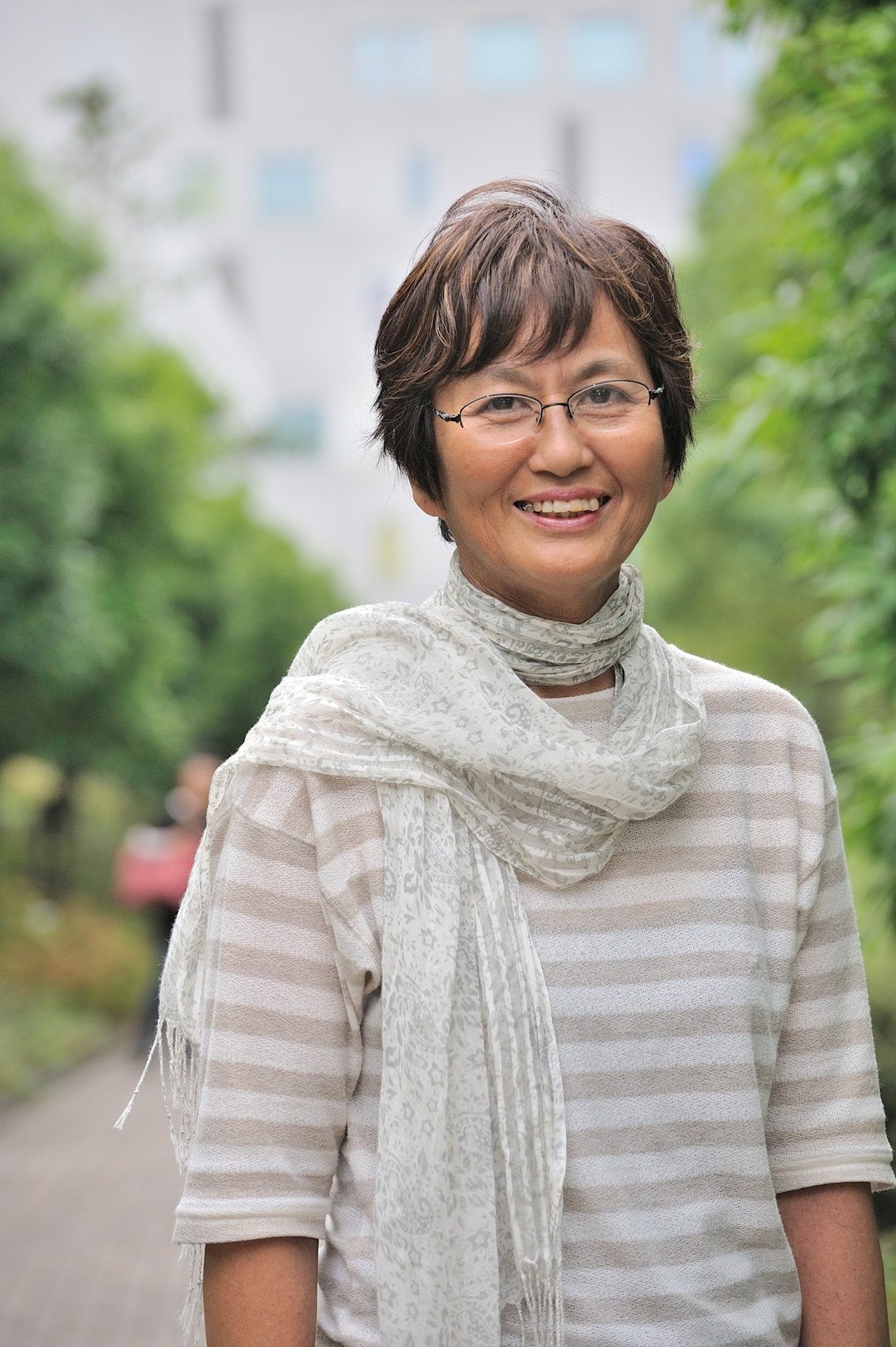
Reiko Masai
Reiko Masai, founder and Executive Director of NPO Women’s Net Kobe, Kobe City, Hyogo Prefecture, the first group in Japan to call attention to disaster-related gender-based violence and published reports documenting women’s experiences, including Women talk about the Great Hanshin-Awaji Earthquake (English translation available at https://wn-kobe.or.jp/bosai/eng/index.html). For over thirty years, Ms. Masai has worked to promote women’s rights and gender equality in Japan. In 2007, she launched Disaster & Gender Information Network, the first initiative of its kind in Japan, and co-founded Women's Network for East Japan Disaster in 2011 (http://risetogetherjp.org/?cat=46), also the first of its kind, advocating for more inclusive disaster response. For her tenacious activism, she has received numerous awards, including Kato Shizue Award in 2003 and the Champion of Change Japan Award from the Fish Family Foundation in 2018.
Keywords: gender-based violence, community activism, gender and health
Media: Transcript (English, Japanese), YouTube Video (Japanese, English Subtitles)

Yamileth Mejía
Yamileth Mejía was born in 1967, joining the national Literacy Campaign as a girl and receiving her teacher training in Cuba in 1984. She is one of the nine feminists formally accused by the Government of Nicaragua for supporting the rights of an eleven year-old girl who had been raped to obtain an abortion. At last contact, she was working for the Project for Comprehensive Services to Victims of Gender-based Violence funded by the Spanish Cooperation Agency.
Keywords: community activism, education, gender-based violence, reproductive rights, reform of domestic/family roles
Media: Transcript (English, Spanish), Video (English, Spanish), Bibliography, YouTube Video (English, Spanish), Name Pronunciation Audio
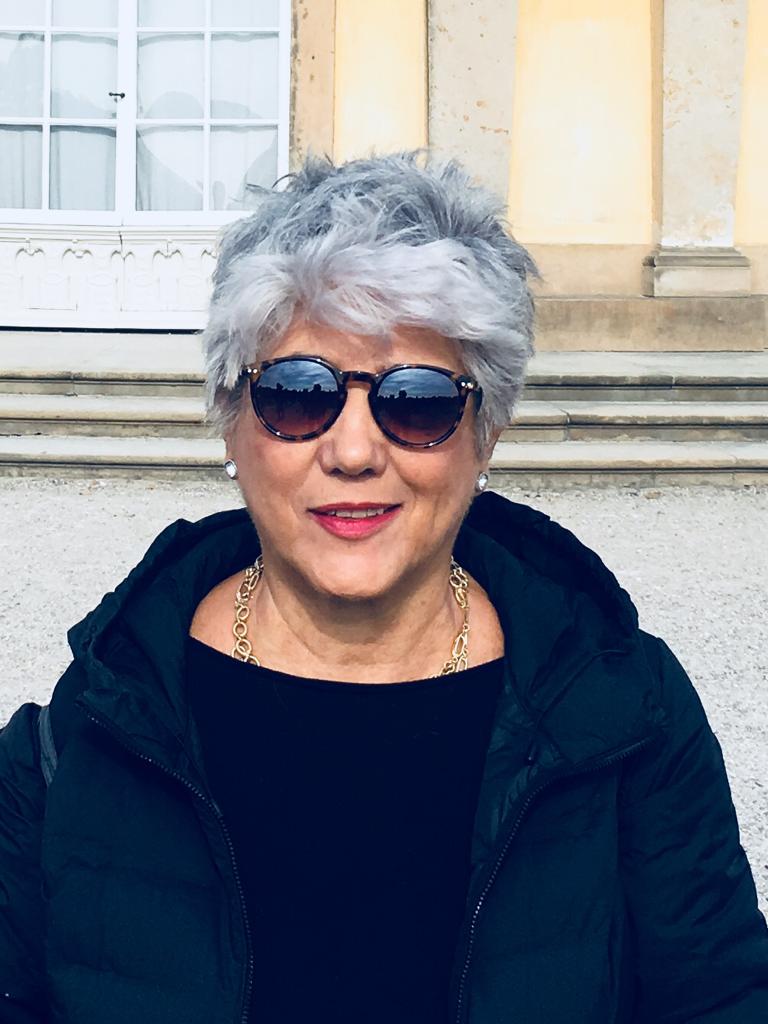
Lia Migale
Lia Migale, writer and economist, was born in 1949 and lives in Rome, where she was a professor of Business Economics at the “La Sapienza” University in Rome until the 2014/2015 academic year. She was a consultant on issues of the economics of art and planning and business strategy for Italian and international organizations. She also worked as an economic editor in the national press for a long period and published various economic essays. Feminist since the 1970s, she was a member of the Board of Directors of the Casa internazionale delle Donne di Roma from 2014 to 2019. She has published several works on Italian feminism, including “Piccola storia del femminismo in Italia” (Empiria, Roma, 2016), and “Imprenditoria femminile e sviluppo economico”, (Nuova Italia Scientifica, Roma, 1996). She has also published novels, short stories, and other essays. With the novel L’innumerevole uno (Iacobelli Editore, Roma, 2018) she was the winner of the 2018 Capalbio Award. Her latest novel, “Incontri all’angolo di un mattino” was published in 2018 (La Lepre Edizioni Roma) and received one of the awards from L’IGUANA, Castello di Prata Sannita in 2019.
Keywords: media, community activism, intersectionality, LGBTQ+ rights, art/writing as activism
Media: Transcript (Italian, English), YouTube Video (Italian, English Subtitles)

Diana Miloslavich Túpac
Diana Miloslavich Túpac was born in Huancayo, likely in the late 1950s or early 1960s. Diana is the Director of one of the most important women’s organizations in Perú, an expert on advancing women’s policy, and an accomplished author with more than 40 years of experience working to advance women’s political participation and human rights in Perú. She obtained a Masters in Literature at the Universidad Nacional Mayor de San Marcos and was a Ph.D. Candidate in Social Sciences, specializing in History with the thesis "History of the Political Participation of Women in Perú." Diana has participated in the execution of numerous projects in the promotion of legal and political initiatives related to women’s rights. For example, as part of the Women's Forum in Perú, she presented the first proposals for gender quotas and domestic violence in 1991. She was an advisor to the Women's Commission of the Municipality of Lima and of the creation of the Pro Equity Office from 1999 to 2002. In 2003, she was part of the team with the Ministry of Women and Social Development. In 2011, she was part of the Transfer Commission of the new government, and later Head of the Cabinet of Advisers to the Minister for Women. Diana has also participated in various projects with organizations such as: Equality Now, DAWN, RENAMA, Social Watch, UN Women, UNIFEM, UNFPA, UNICEF, DIAKONIA, CUSO, NOVIB, Oxfam, UE, and USAID, among others. Most recently, she was a major player in the campaign to promote and pass the newly established Gender Parity Law (Law No. 31030, 2020. Diana is currently the Director of the Political Participation and Decentralization Program of the Peruvian Women's Center, Flora Tristán, a key feminist institution created in 1979 with a focus on women’s rights. She is also an accomplished author (select titles): The Autobiography of Maria Elena Moyano: The Life And Death Of A Peruvian (1992), with editions in Spain and translated in Italy, USA and Japan); Women's Literature, A look from feminism (2012); Flora Tristan: Peregrinations of an Outcast at the Fair (2019); Feminism and Suffrage 1933-1956 (2015); Political Harassment in Peru: A look at Electoral Processes (2016), Gender, Parity and Disaster Risk Management (2019), publishing both through Flora Tristán and an academic press in the U.S.
Keywords: community activism, politics and the law
Media: Transcript (Spanish, English), Video, YouTube Video (Spanish, English Subtitles), Name Pronunciation Audio

Penina Mlama
Penina O. Mhando Mlama was born in Morogoro in 1948; she is a scholar, gender activist, analyst and practitioner of popular theatre in Tanzania, a playwright. She studied at University of Dar es Salaam (BA (Hons) Education), MA Theatre in Education and PhD. Mlama joined the department of theatre arts at the University of Dar es Salaam upon graduating. She is one of the few female writers published in Swahili language in the period from the 1970s to the early 1990s. She was the first female Deputy Vice Chancellor – Academic at the University of Dar es Salaam. She pioneered several initiatives to increase admission and performance for female students at the University of Dar es Salaam, and was the co-founder of the TUSEME1 (speak out) empowerment model for gender equality for both primary and secondary schools. She joined the Forum for African Educationalists (FAWE) as an Executive Director and founded and led a progressive program on supporting access, retention and performance for girls.
She has published her plays as well as many scholarly works, including works aimed at supporting activists.
Keywords: academia and women's studies, community activism, education
Media: Transcript, YouTube Video

Nasra Juma Mohamed
Nasra Juma Mohamed is a retired Deputy Commissioner of the Tanzania Migration Department, where she held several positions for many years. While working with the Migration Department, Mohamed was actively involved in sports. She is an accomplished athlete, a licensed football coach, and holds certificate in sport management. She holds a diploma in foreign relations and diplomacy and a bachelor’s degree in social work from Tanzania Open University. Mohamed’s activism has emphasized both women’s sports (she established the first female soccer team in Tanzania) and women’s roles in coaching. She has served as an executive member of Tanzania Olympic Committee; head coach of First Division Men’s team Kikwajuni Football Club in Zanzibar; Executive member of Zanzibar Football; Chairperson of Technical Committee of Zanzibar Football Federation; and many coaching positions. As an athlete, she participated in national, regional, and international competitions in badminton and soccer.Keywords: community activism, education, activism during the COVID-19 pandemic
Media: Transcript (Swahili, English), YouTube Video (Swahili, English)
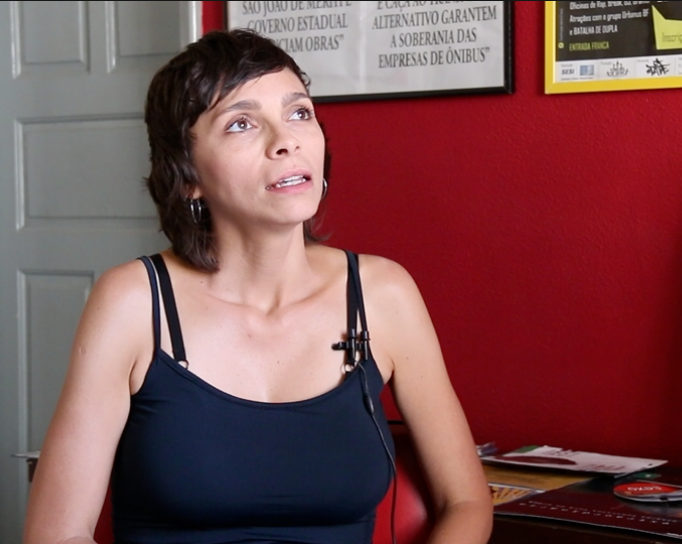
Giordana Moreira
Giordana Moreira, born in 1980, is a human rights activist and has been working in the arts as a cultural producer since the-mid 2000s. In 2011 she created Roque Pense!, a network of women cultural producers that promotes projects and festivals through music and graffiti arts to raise awareness about women’s rights and to celebrate women’s artistic work.
Keywords: gender-based violence, art/writing as activism, community activism
Media: Transcript (English, Portuguese), Video, YouTube Video (Portuguese, English) Name Pronunciation Audio

Dona Murphey
Dona Murphey, born in 1979, is a neurologist, neuroscientist, historian of science, and community organizer. She has navigated local, state, federal, and international partnerships across academia, government, and health tech sectors in rapid response and strategic mobilizations at the intersections of race, poverty, and immigration. Her belief in the foundational democratic rights to health, migration, public education, and voting have informed her extensive grassroots activism and nonprofit advocacy and a run for her local school board in Texas. Her current project is a public benefit start-up that marries her scientific and clinical expertise with a community organizing ethos to develop a digital diagnostic tied to culturally and language specific content and community health worker access to help eliminate racialized health disparities in dementia.
Keywords: activism during the COVID-19 pandemic, community activism, disability rights, intersectionality
Media: Transcript (English), YouTube Video, Name Pronunciation Audio

Maanda Ngoitiko
Maanda Ngoitiko was born in 1972 in Tanzania in a traditional pastoralist homestead, and grew up moving with her family and cattle. She refused early marriage efforts on her behalf, and pursued an education instead. She completed her secondary education in Dar Es Salaam; and continued to study for a diploma in Management of Community Development Programs, Arusha Tanzania. She received a further advanced diploma in Development Studies and Planning from Kimmage Development Studies Centre, Dublin, Ireland. Finally, she received a bachelor’s degree in environmental studies from Kenyatta University in Nairobi Kenya. Ngoitiko is a gender activist and a feminist who has advocating for equity, justice and the rights of Maasai women and girls. Along with 9 other pastoralist women, she founded the Pastoral Women’s Council (PWC), and she has been the Executive Director since then. She has been a councillor of the ruling political party (CCM) at the Ngorongoro District, in Arusha region since 1998. She is also an Education Coordinator for Soitsambu Cultural Learning Program under Lewis and Clarke University. She was a chairperson for the Ngorongoro District Council (2009 -2012). She sits on various boards of secondary schools, Hospital and CSOs in her home district of Ngorongoro.
Keywords: community activism, gender and health, rural women and land reform
Media: Transcript, YouTube Video
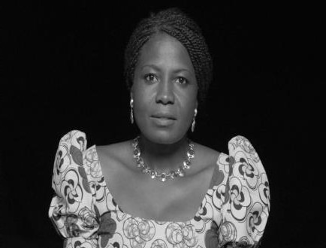
Olanike Olugboji
Olanike Olugboji, born in 1974, is the founder/director of Women’s Initiative for Sustainable Environment (WISE). While attending elementary and high schools at Command Children’s School and Federal Government College Kaduna, respectively, she developed the habit of picking up litter. Following her education in technology and urban and regional planning, she began pursuing her dream of working towards a sustainable, clean and safe environment while supporting women’s health and empowerment, through the clean cookstoves initiative. Ms. Olugbogi hopes to contribute to producing a younger generation of Nigerians that is more committed to nurturing their environment through the Women’s Initiative for Sustainable Environment (WISE).
Keywords: environment, community activism, education
Media: Name Pronunciation Audio, Transcript, Video, YouTube Video
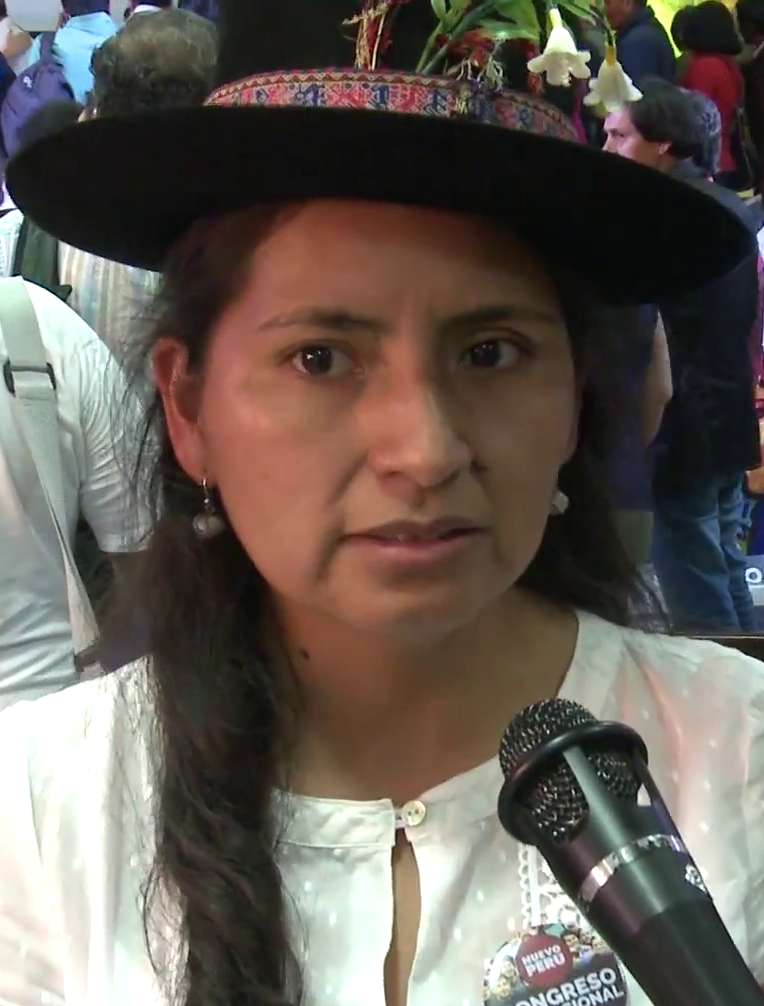
Tania Pariona Tarqui
Tania Pariona Tarqui, born in 1984, is an indigenous activist, Quechua leader, feminist, politician, human rights activist and former Congressperson. As an activist, she works to establish social equality for indigenous youth and women. She began her community work with National Movement of Organized Working Children and Adolescents of Peru (MNNATSOP), an overarching umbrella for many children’s working groups. She was chosen as a Latin American delegate and had her first experience of international representation at age 15 at the “World Summit for Children” at the United Nations in New York. She studied Social Work at the San Cristóbal of Huamanga University, graduating in 2009, and then Human Development at the Pontifical Catholic University of Peru in Lima. She went on to work with the Centre for Indigenous Cultures of Peru (CHRIAPAQ), collaborating on several projects aimed at indigenous youth and women nationally and internationally. In 2010, with Andean and Amazonian sisters, she helped form the Organización Nacional de Mujeres Andinas y Amazónicas de Perú, (ONAMIAP) that promotes the participation of indigenous women and fulfillment of their individual and collective rights. She was the first youth secretary for ONAMIAP. She was elected to the Peruvian Congress in 2016 by the Broad Front for Justice, Life and Freedom, coalition of political parties. In September 2017, she joined the New Peru movement. From 2018-2019, she was the president of the Commission on Women and Family, which promoted the first thematic plenary session focused on a women’s agenda and equality between men and women. Her parliamentary work was dedicated to the defense of the rights of indigenous and native peoples against mining companies, the human right to water and reparations for the victims of the armed conflict, and working against impunity of the perpetrators of crimes, including compulsory sterilization under Alberto Fujimori's government. She is currently assuming responsibility for the Indigenous Women’s Program in CHIRAPAQ and has concerns for the indigenous populations of the Sierra and jungle coast, in the face of the COVID-19 pandemic.
Keywords: community activism, gender-based violence, indigenous issues, reproductive rights, rural women and land reform
Media: Transcript (Spanish, English), Video, YouTube Video (Spanish, English Subtitles), Name Pronunciation Audio
Interviewee Photo Credit
By psperu. https://commons.wikimedia.org/wiki/File:Tania_Pariona_Tarqui.png. Creative Commons. Accessed 2 February, 2021.
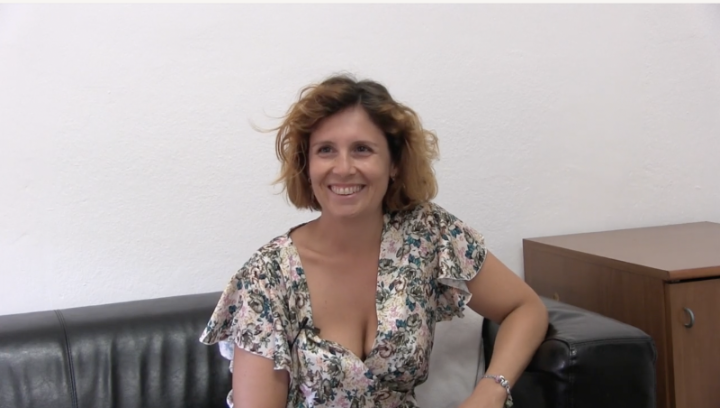
Samanta Picciaiola
Samanta Picciaiola was born in 1976. She received her research doctorate in Italian studies at Sorbonne Paris IV and the University of Florence and a degree in philosophy from University of Bologna. She has worked full time as a public primary school teacher since 2005. She is an activist for the rights of LGBTQ+ people.
Keywords: community activism, education, gender-based violence
Media: Transcript (Italian, English), YouTube Video (Italian, English Subtitles)

Olutola Oluyemisi Ransome-Kuti
Olutola Oluyemisi Ransome-Kuti was born in 1947 in a family deeply engaged in the political life of Nigeria. Ransome-Kuti was educated in both the United Kingdom and Nigeria, where she earned degrees in business management, aesthetics, counseling, and human resources management. She was involved in the struggle for democracy in Nigeria and was arrested and sent to prison on her way to attend the Beijing Women’s Conference (1995). Ransome Kuti founded the Nigeria Network of NGOs, an umbrella organization that coordinates and regulates the activities of NGOs in Nigeria. She once ran Girl Watch, an organization that focused on educating young Nigerian girls from low socio-economic backgrounds. In 2006, the World Bank appointed her as the civil society advisor on Nigeria’s working groups on millennium development goals and poverty eradication.
Keywords: politics and the law, community activism, environment
Media: Name Pronunciation Audio, Transcript, Video, YouTube Video
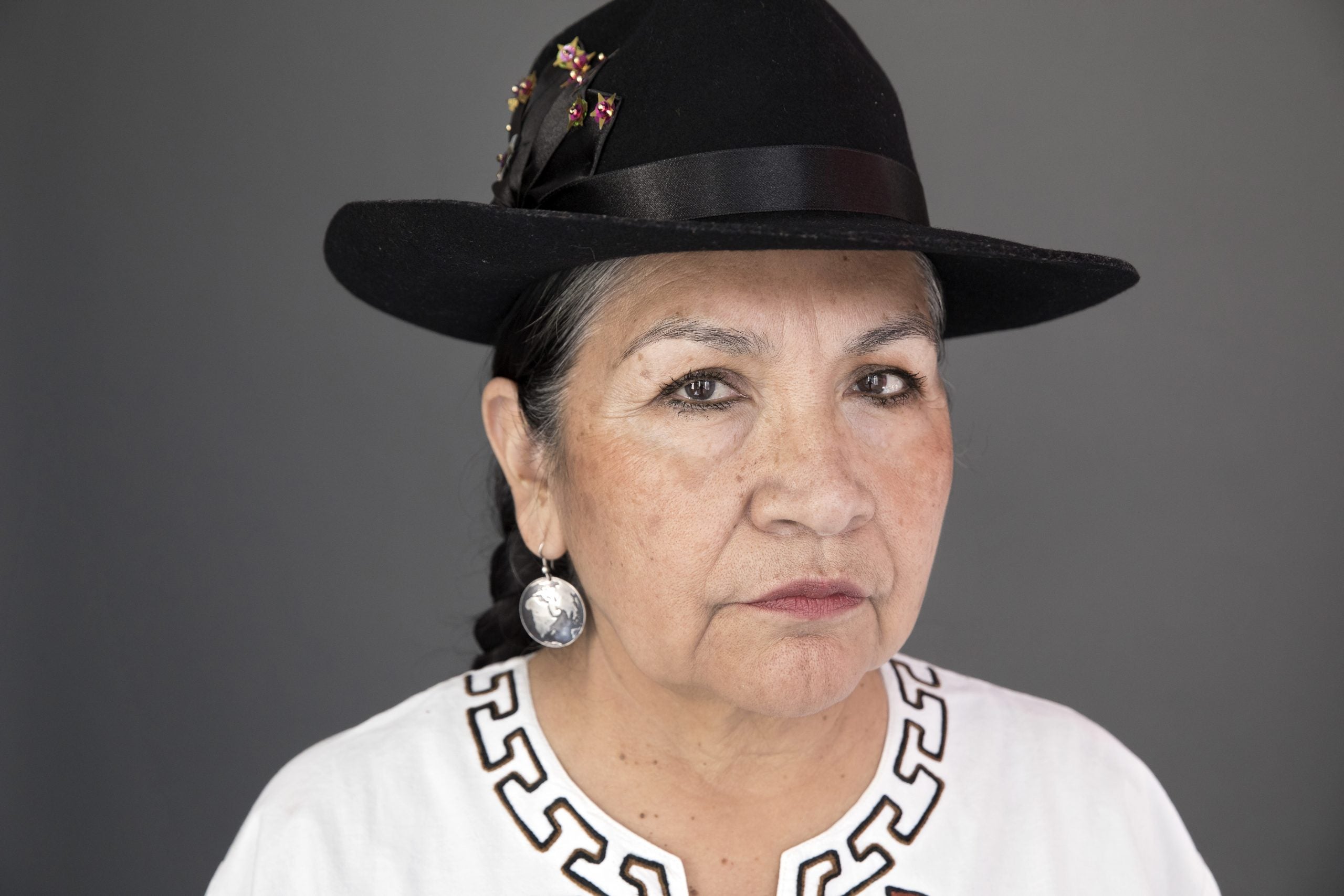
Tarcila Rivera Zea
Tarcila Rivera Zea is a Quechua activist who has dedicated nearly 40 years of her life to defending and seeking recognition for the indigenous people of Perú. She was born in the community of San Francisco de Pujas, Ayacucho, capital of the province of Huamanga, Peru. During the 1970s, she worked as a specialized secretary in archival and library science at the Ministry of Culture of Peru, studying at the Vatican City and Argentina. She also served as secretary of Martha Hildebrandt at the National Institute of Culture. Years later she collaborated as a journalist for the Pueblo Indio magazine of the Indian Council of South America (CISA). In recognition of her work in collecting testimonies of Indigenous women raped during armed conflicts, she was invited to pursue specialization courses in human rights at the Institute for Social Studies (ISS) in The Hague, The Netherlands, and the International Center for Education in Human Rights in Charlottetown, Canada. In 1987 she began to participate in international processes on the rights of indigenous peoples, as well as in United Nations conferences on Women, which led her to be invited by UN Women in 2012 to be part of her International Advisory Group on the Civil Society. Rivera Zea is the founder of the Continental Link of Indigenous Women of the Americas (ECMIA) and the International Forum of Indigenous Women (FIMI), two networks that promote the empowerment and political involvement of the world's indigenous women. As a result of all her years of activism, defending and making visible the cultures and indigenous peoples of Peru, the Permanent Workshop of Andean and Amazonian Indigenous Women of Peru and of the Center of Indigenous Cultures of Peru (CHIRAPAQ) was created. She was president of CHIRAPAQ and is currently the vice president, coordinator of the Continental Liaison for Indigenous Women of the Americas (ECMIA), member of the Board of Directors of the Voluntary Fund for Indigenous Peoples of the United Nations between 2006 and 2011. She has also collaborated in the creation of the International Indigenous Press Agency (AIPIN).
Keywords: community activism, intersectionality, racial identity, rural women and land reform
Media: Transcript (Spanish, English), Video, YouTube Video (Spanish, English Subtitles), Name Pronunciation Audio
Interviewee Photo Credit
By UN Women. https://www.flickr.com/photos/unwomen/32865257584/in/photolist-S5c359-24bQkzG-z18VSS-24bQkyu. Creative Commons. Accessed 2 February, 2021.

Mary Rusimbi
Mary Rusimbi was born in 1953 in Tanzania. She holds a BA in education (University of Dar es Salaam), and a Masters in Community Education (University of New Zealand).
She is a gender activist, policy analyst, and feminist, who has translated feminist principles in organizational culture. She is a co-founder of civil society organizations and women’s rights organizations in Tanzania, such as Tanzania Gender Networking Program (TGNP), Women Fund Tanzania Trust (WFT-T), Foundation for Civil Society (FCS); Tanzania Gender Networking Program (TGNP), HAKIELIMU, Women Fund Tanzania Trust (WFT-T); and UZIKWASA-Pangani and Tabata Development Fund (TDF). She served in various national, regional and international boards including Tanzania Gender Networking Programme, Foundation for Civil Society, Research for Poverty Alleviation, Southern African Research and Documentation Centre, and Partnership Africa Canada (Canada). She has produced many publications. She brings rich experience to the women’s rights movements, and has worked with government, bilateral, multilateral and NGOs in the region and beyond.
Keywords: community activism, gender and health, politics and the law
Media: Transcript, YouTube Video
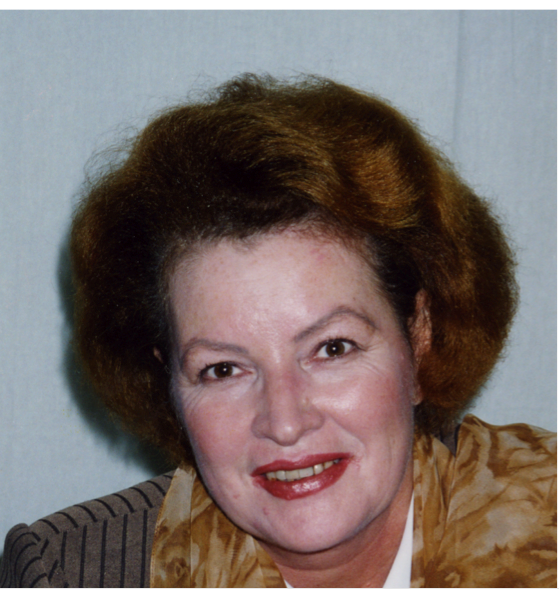
Liubov Vasil’evna Shtyleva
Liubov Vasil'evna Shtyleva, born in 1956, was a teacher of history in public schools before going back to get her doctorate in education. She then taught educational science and psychology at the Murmansk State Pedagogical Institute, worked at the Institute for Social Pedagogy at the Russian Academy of Education, and was the principal research associate at the Institute of Childhood, Family and Upbringing at the Russian Academy of Education. She has worked on issues of education and gender in Russia and internationally.
Keywords: academia and women's studies, reform of domestic/family roles, community activism, feminist conferences
Media: Transcript (English, Russian), YouTube Video (English, Russian), Video (Russian), Name Pronunciation Audio
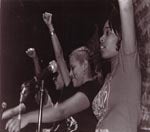
Sista II Sista
Sista II Sista is a Brooklyn-wide, community-based organization located in New York. It is a collective of working class young and adult Black and Latino women building together to model a society based on liberation and love. The organization is dedicated to working with young women of color to develop personal, spiritual and collective power, and is involved in a variety of projects, including The Freedom School for Young Women of Color, The Big Mouth Project, and Sista Liberated Ground.
Keywords: community activism, gender-based violence, intersectionality
Media: Transcript (English), Video, Bibliography, YouTube Video, Name Pronunciation Audio

Maureen Taylor
Maureen Taylor (interviewed with Marian Kramer) is a social worker and community activist. She has served as chair of the Michigan Welfare Rights organization and was elected treasurer of the National Welfare Rights Union. She defends recipients of public aid at the Michigan Family Independence Agency in case disputes, and directs the Detroit NFI Community Self Sufficiency Center. She was awarded the National Community Leader Award from the National Black Caucus in Washington, DC. Taylor and Kramer spoke at a rally in Detroit, Michigan in June 2020, and a video of their speech recorded by the group Detroit Will Breathe can be found here.
Keywords: gender and health, media, community activism, politics and the law
Media: Transcript (English), Video, Bibliography, YouTube Video, Name Pronunciation Audio
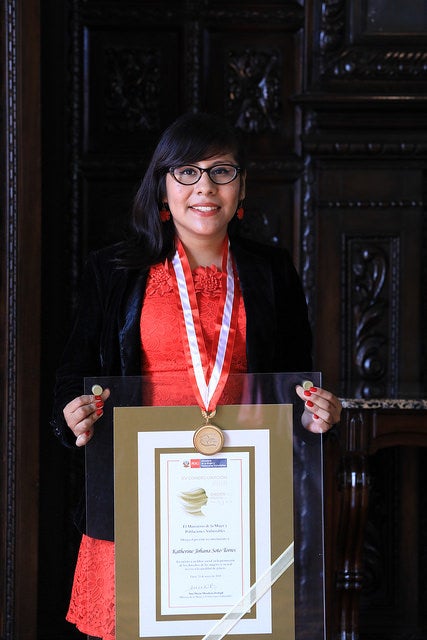
Katherine Soto Torres
Katherine Soto Torres, born in 1993, studied Sociology at the Universidad Nacional Federico Villarreal and is currently completing a Master's in Public Policy at the Universidad Católica-Peru. She is the daughter of migrants and the first in her family to have access to a college education. Kate is a young activist, recognized by the Ministry of Women and Vulnerable Populations for her work with Carabayllo youth through her club of girls SULANS (Siempre Unidas Lograremos Alcanzar Nuestros Sueños; United Always We Will Reach our Dreams), which works to create safe and empowering spaces for young girls. Among other awards, Katherine received the “Order of Merit for Women” from Peruvian President Martin Vizcarra in 2018, in recognition of her social work in the promotion of women's rights and the fight for gender equality. Kate founded Mujeres Desaparecidos Perú (Missing Women-Peru), an organization that reports cases of missing women and girls and was born out of the disappearance of her friend Solsiret Rodríguez, who is still unaccounted for. Kate is also the coordinator of the CHIRAPAQ, a Centro de Culturas Indígenas del Perú project that promotes the affirmation of identity and the recognition of indigenous rights in the exercise of citizenship, with a special commitment to indigenous children, youth and women.
Keywords: activism during the COVID-19 pandemic, community activism, sex work
Media: Transcript (Spanish, English), Video, YouTube Video (Spanish, English Subtitles), Name Pronunciation Audio
Interviewee Photo Credit
By SouhiroZ. https://commons.wikimedia.org/wiki/File:Katherine_Johana_Soto_Torres.jpg. Creative Commons. Accessed 2 February, 2021.
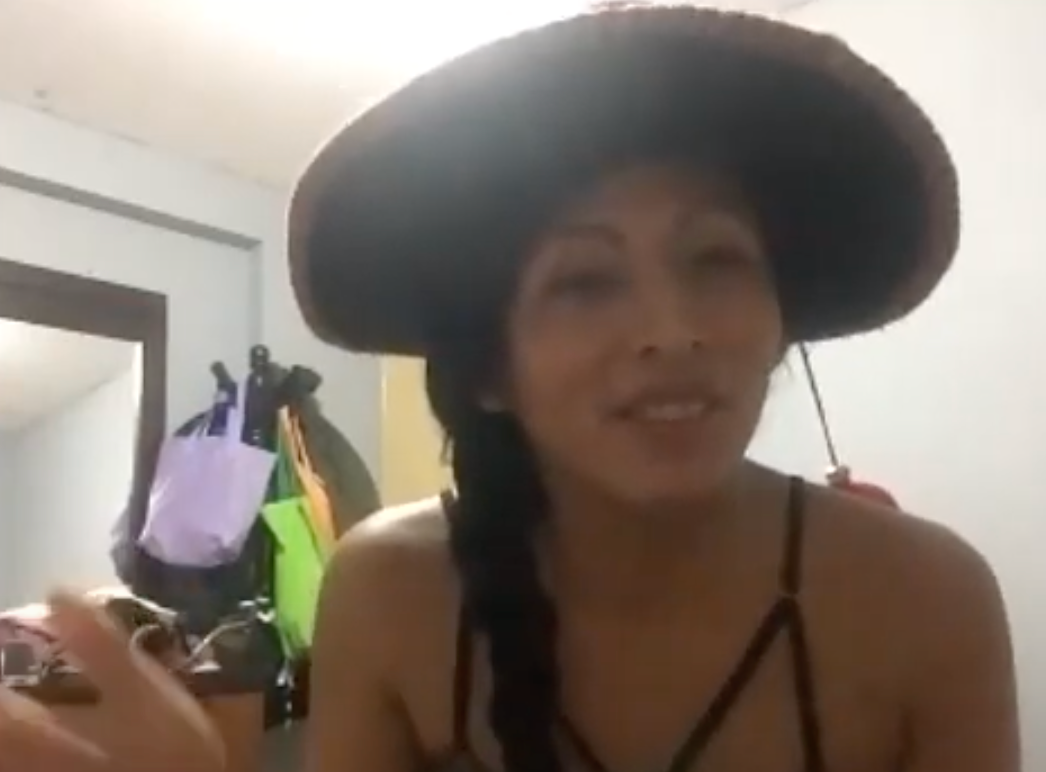
Gahela Tseneg Cari Contreras
Gahela Tseneg Cari Contreras, born in the early 1990s, is a transgender woman who began participating in politics in 2015 in the National Youth Congress held in Huaraz. Gahela grew up in a rural area of the Ica region. Her early life reflects much of the upheaval of Peru's recent history. Her mother was a peasant leader, native of Ayacucho, who was saved from forced sterilization ordered by the government of Alberto Fujimori. Her father was forced to flee Peru because of threats from terrorists, who besieged the work of union leaders. Both became immigrants, as did another 7 million Peruvians who mobilized internally for political or economic reasons. At age 27 she ran to become the first transgender woman in Peru’s Congress in the January 2020 elections, campaigning with what has been described as one of the most courageous and intersectional programs of the emerging and diverse Peruvian left. Although she did not win a seat, she has continued her political activism to transform issues of equity and discrimination among LGBTI individuals.
Keywords: community activism, LGBTQ+ rights, politics and the law
Media: Transcript (Spanish, English), Video, YouTube Video (Spanish, English Subtitles), Name Pronunciation Audio
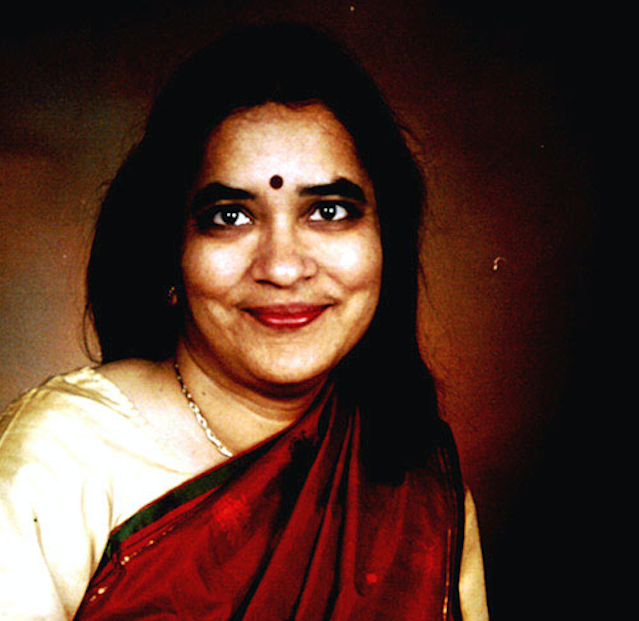
Ruth Vanita
Ruth Vanita, born in 1955, is an author and professor at the University of Montana, where she teaches courses in the Humanities, Literature, and Women's Studies. She was formerly a reader in English at Miranda House and the English department, Delhi University. She is one of the founding co-editors of Manushi, India's first feminist journal.
Keywords: education, gender-based violence, LGBTQ rights, community activism, academia and women's studies
Media: Transcript (English), Video, Bibliography, YouTube Video, Name Pronunciation Audio
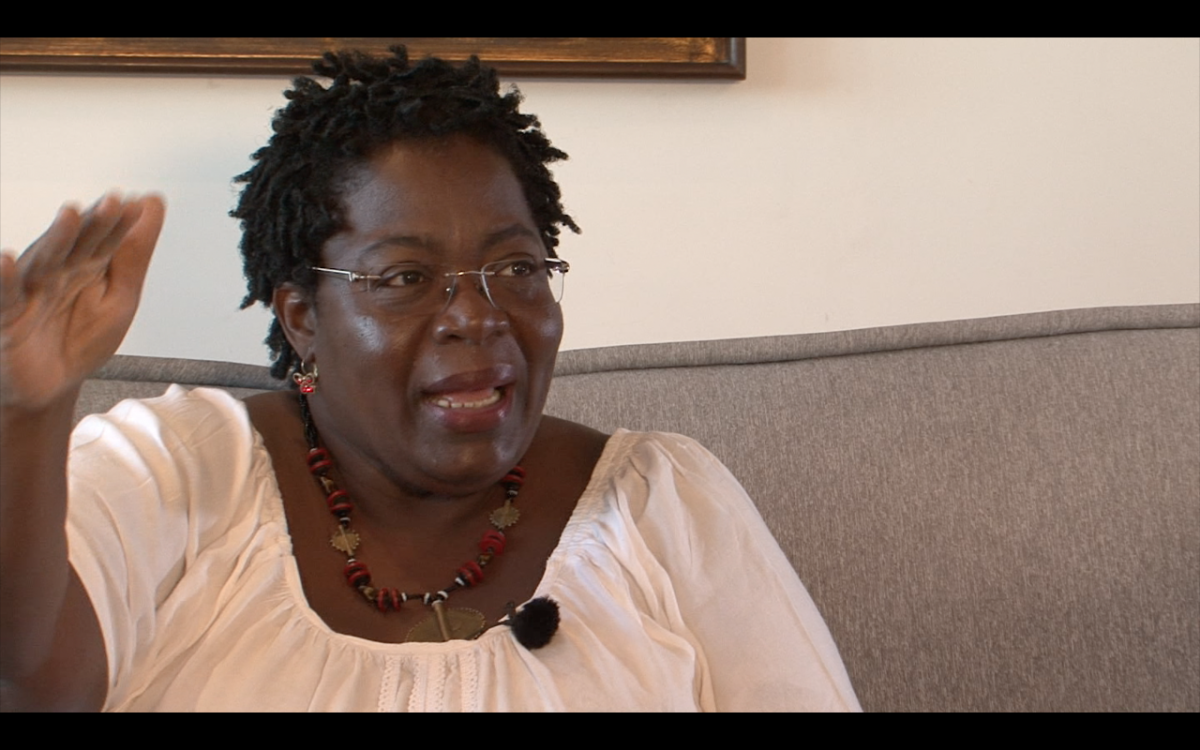
Elizabeth Viana
Elizabeth Viana (interviewed with Giovana Xavier) was born in 1954 in Rio de Janeiro and is a sociologist. She helped found the Group Lima Barret and actively participated in the democratization process of the country. She has been involved with the Nzinga Collective of Women, the Unified Black Movement (MNU), and the Black Action of Nilópolis. She has been the Legislative Assistant at the Municipal Chamber of Rio de Janeiro for 35 years.
Keywords: community activism, racial identity, academia and women's studies, reform of domestic/family roles
Media: Transcript (English, Portuguese), Video, YouTube Video (Portuguese, English Subtitles), Name Pronunciation Audio
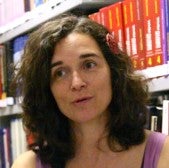
Shirley Villela
Shirley Villela, born in Rio de Janeiro in 1964, began her professional work in gender issues while living for three years in the USA, volunteering at the International Gender and Trade Network. Since 2012, she has been the Coordinator of the Maré de Sabores project, a vocational training project for women in Rio.
Keywords: feminist conferences, community activism, education
Media: Transcript (English, Portuguese), Video, YouTube Video (Portuguese, English Subtitles), Name Pronunciation Audio
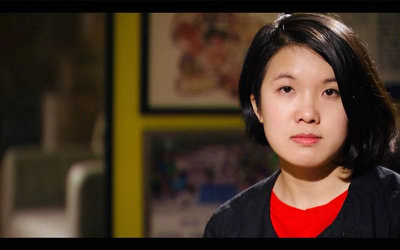
Wei Tingting
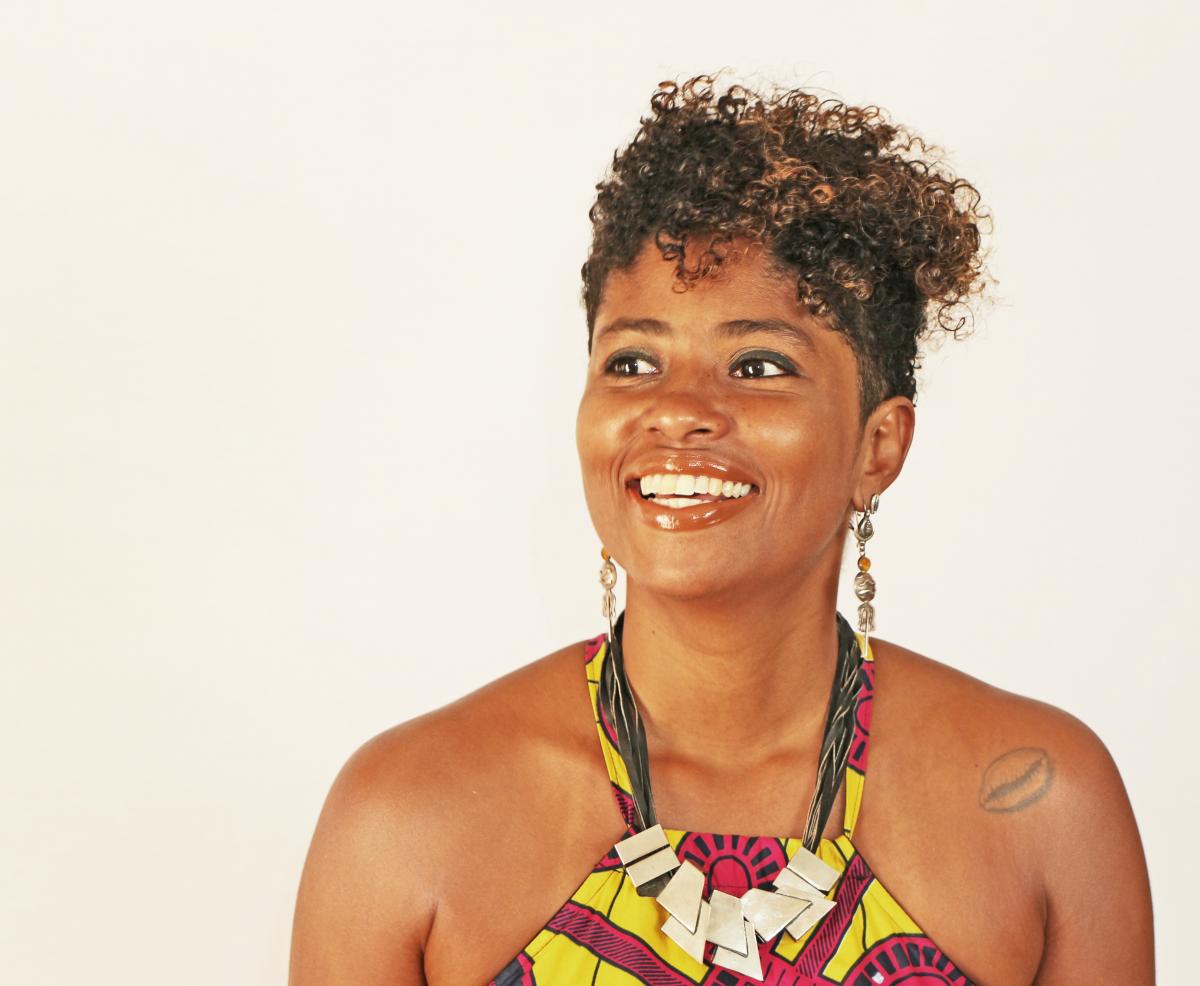
Giovana Xavier
Giovana Xavier (interviewed with Elizabeth Viana) was born in 1979 in Irajá. She is a professor of History at The Federal University of Rio de Janeiro. As a black intersectional feminist, Giovana situates her activism in the academy, especially through her work with black students at the university. At the last contact, she was involved in the project “Black Professors in the First Person: History Teaching and Activist Research.”
Keywords: community activism, racial identity, academia and women's studies
Media: Transcript (English, Portuguese), Video, YouTube Video (Portuguese, English Subtitles), Name Pronunciation Audio
Etsuko Yahata
Etsuko Yahata, founder and Executive Director of NPO Hearty Sendai, Sendai City Miyagi Prefecture (https://www.hearty-sendai.com/). She spearheaded grassroots initiatives to assist women affected by the 2011 Great East Japan Disaster, on top of running a domestic violence shelter and many assistance programs. Originally trained as a midwife, she has since worked over 30 years in fighting against gender-based violence and promoting reproductive health and justice, human rights, and nonviolence. In addition to serving as the Director of the Miyagi Regional Center of Yorisoi Hotline (a nation-wide free 24-hour telephone assistance program), she serves on the board of director of Sendai Gender Equal Opportunity Foundation, Child Line Miyagi, and many others.
Keywords: community activism, gender and health, gender-based violence
Media: Transcript (English, Japanese), YouTube Video (Japanese, English Subtitles)



